A Letter To Friends About My First Months Living in Kenya
Dear friends,
Greetings from Africa! What is it like living in Kenya? Unlike any place I’ve ever been to before. Nairobi is almost at the equator and at 5,000 feet. Clean, crisp air (definitely a long way from LA); blue, endless skies with armies of soft clouds gliding overhead; long streams of people walking in all directions for miles around to save bus fares; cars, trucks and matatus (these funky, colorful squat shaped minibuses cramped with people to the point that the ticket takers actually hang out the doors with their legs swinging out in the air) careening crazily from lane to lane – irrespective of the lanes they are actually supposed to be in.
I’ve had more than one occasion of being forced into a ditch by one slow moving bus trying to pass another slow moving bus and taking up both sides of the road in the process. By the way, the toughest thing about driving on the left side of the road isn’t shifting gears, its judging your distance on the left, and not hitting people on that side of the road as you’re avoiding cross traffic on your right.
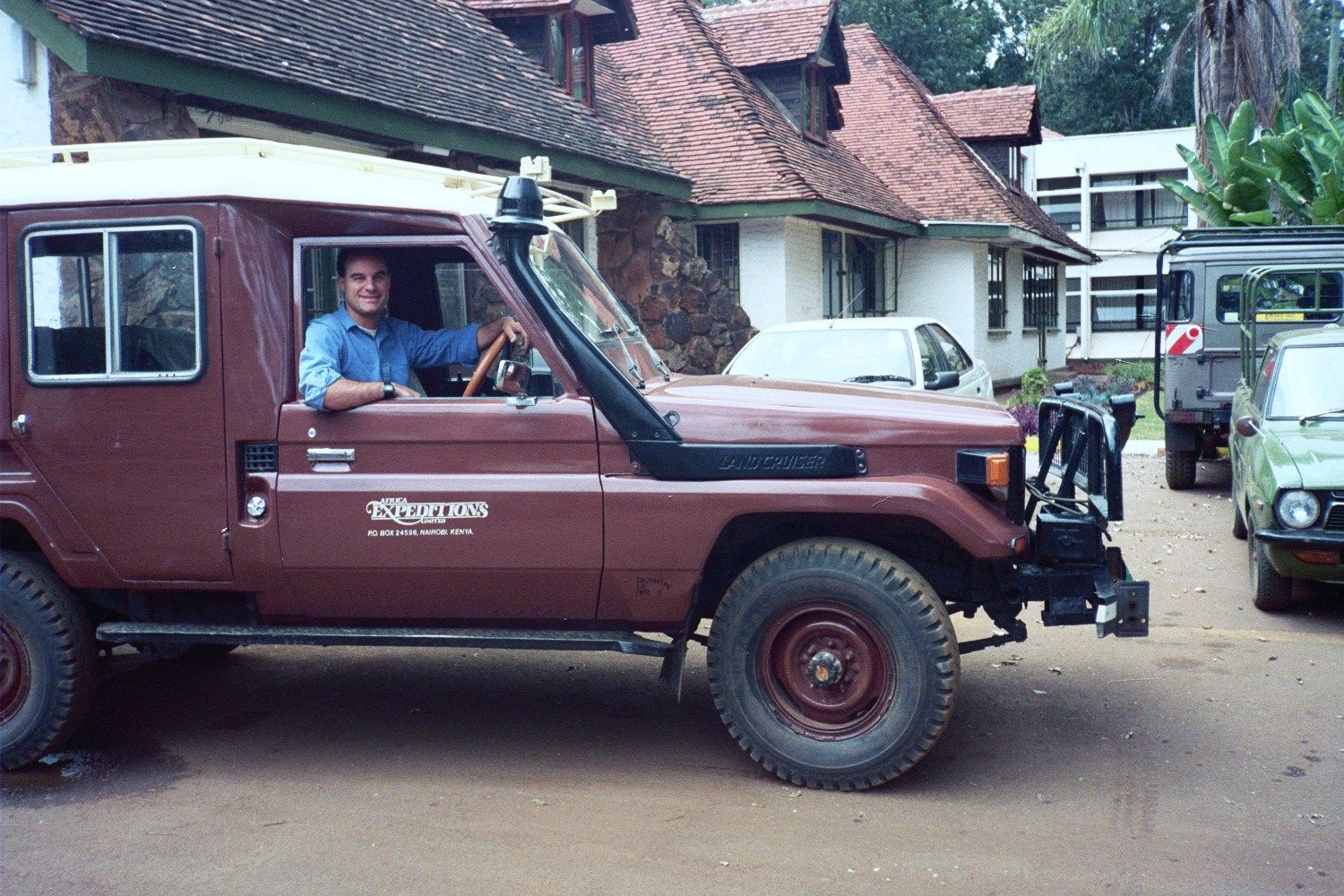
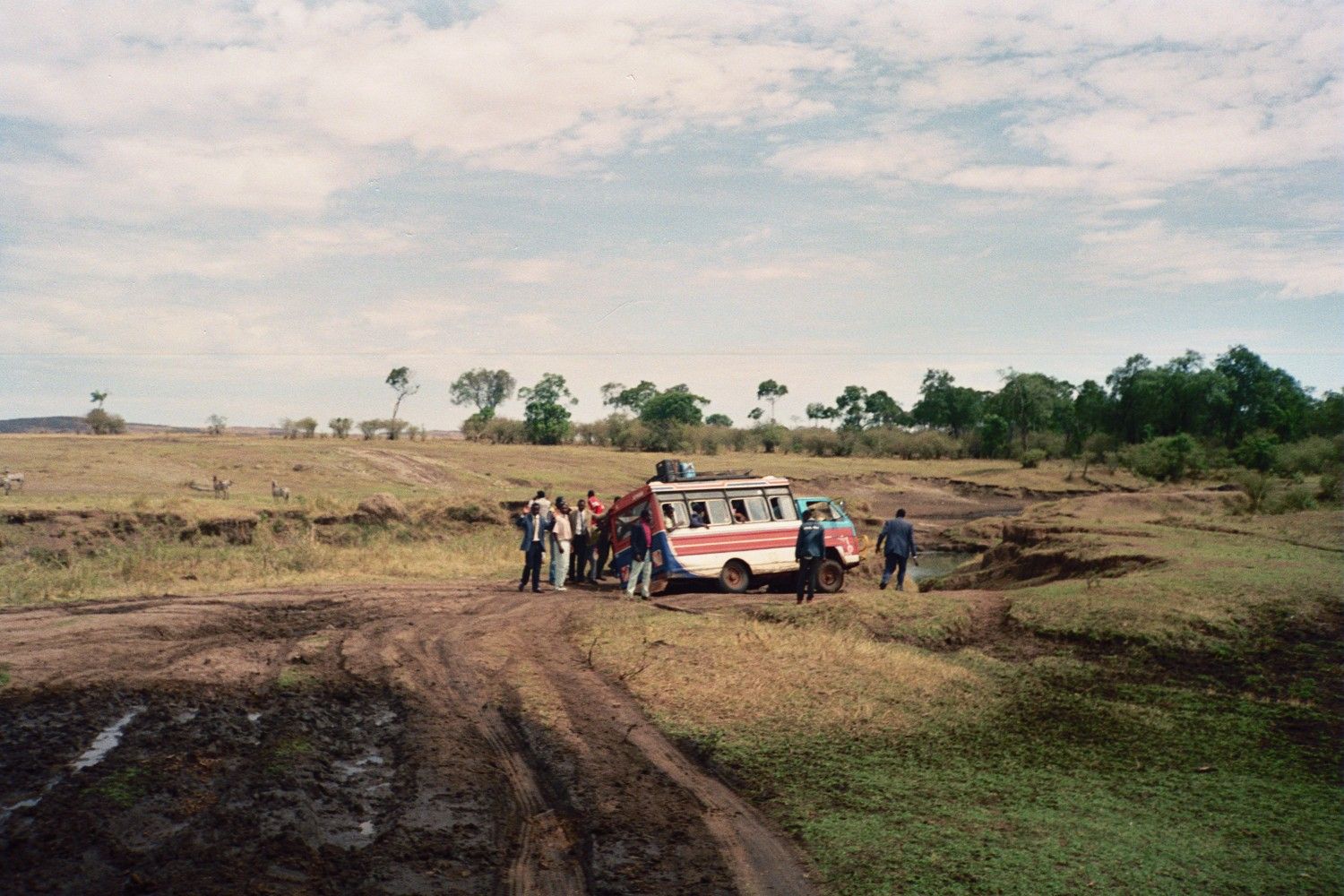
In Kenya I am a mzungu (pronounced mazungu). My father was a mzungu. My mother is a mzungu. I come from a long line of wzungu (plural for mzungu). What, you may ask, is a mzungu? It is someone with white skin in Africa. Is it good to be a mzungu? Overall, yes. You are treated with an abnormal amount of deference if you are a mzungu – especially if you are from Europe or America. Of course, you can also be the target for criminals. There is always the assumption (usually true) that you have more money than the average Kenyan. Its very unreal and can be more than a bit sad if you dwell on it. You have very sweet and intelligent people assuming that you are better than them just because of your skin color – and its their country.
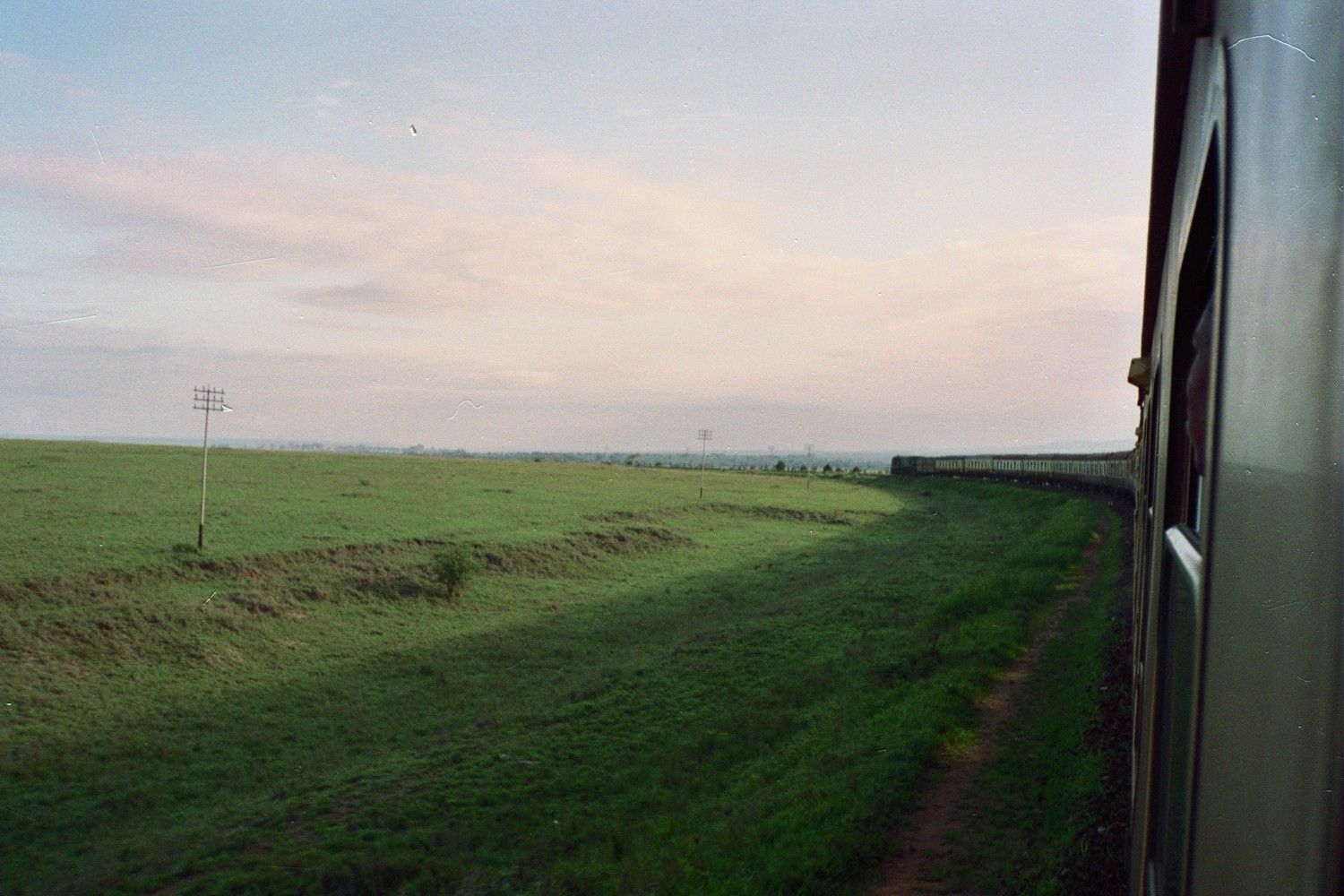
The longer I’m here, the more I feel that the native Kenyans are special. Beautiful glowing black skin; large, white, open smiles; big brown happy eyes; and a softness of the heart that I’ve never seen anywhere else. Some Kenyans are upset that their countrymen are too passive in the face of a corrupt, incompetent government, but the actions of this government are only recently having a seriously adverse effect on the economy, and mass reactions take time. Its been fertile ground for Christian missionaries for years. One of the most successful is the Catholic Church. Its seems to have been a tremendous stabilizing influence on large numbers of people (unlike other parts of the world). Almost all of the Kenyans I’ve enjoyed the most have been Catholics.
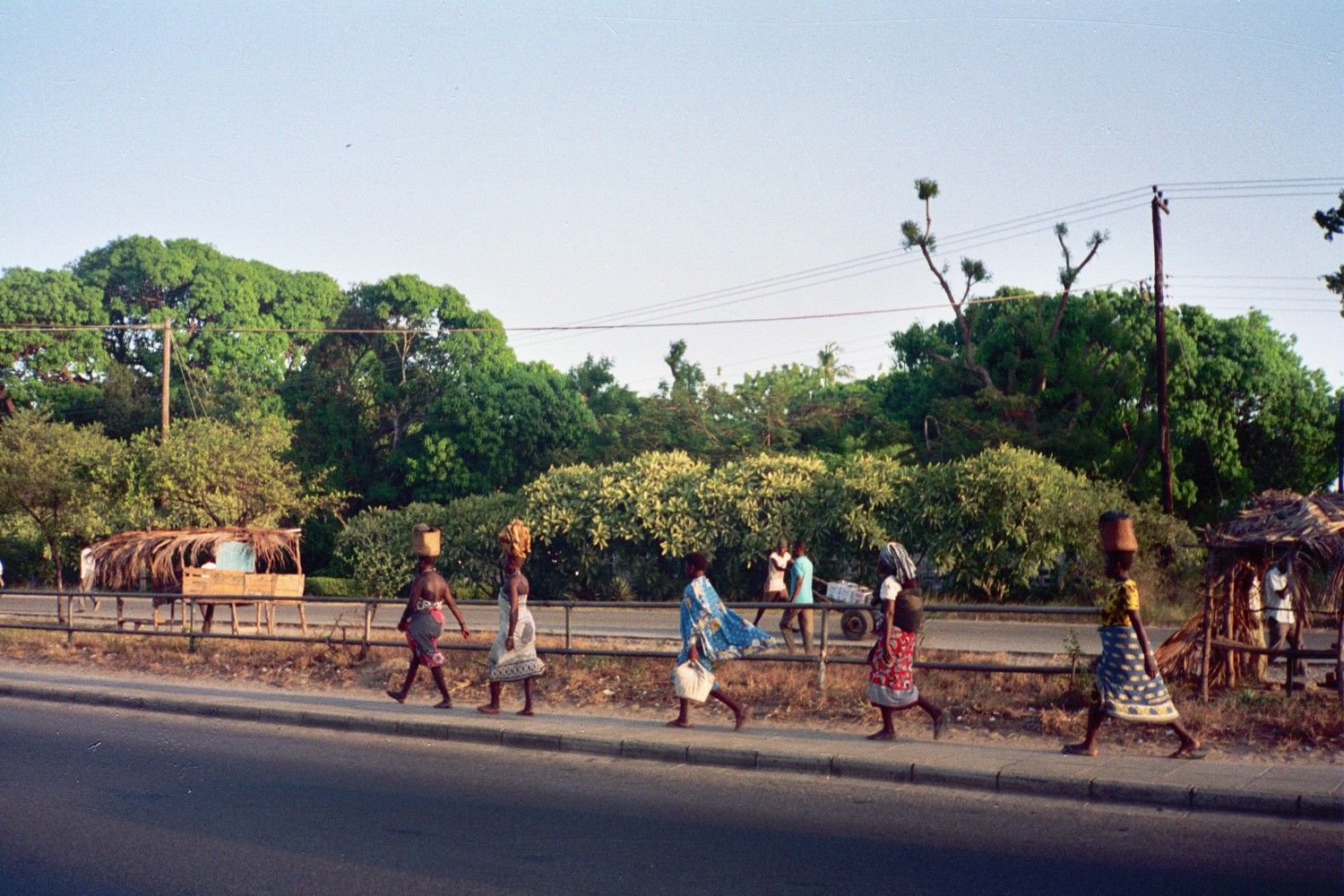
Kenyans are well educated (for a third world country), easy to talk to, honest (for the most part), and easy about things. If I leave Kenya I’ll definitely miss this openness. This is an ex-British colony with a strong British influence. Two or three years ago a second TV station went on the air. A large segment of its programming is CNN International. Peoples’ attention and interest are turning more and more to America. Most young college-aged Kenyans I talked to want to go school in America or Canada. We’ve had three people in the office move there for college two months ago.
I spent five weeks in Mombasa in late August and September helping to set up a hotel and catering operation our company is running for the troops in Somalia. Mombasa is a Kenyan city on the Indian Ocean. It is the classic tropical paradise. Miles of sandy beaches backed by soft, flowing coconut trees; rich blue water protected by one of the longest reefs in the world; huts selling carvings, masks, messages, wind-surfing, snorkeling, fish and fishing trips; white (and red!) skinned tourists speaking about any European language you can think of, especially German and Italian; hotel after hotel offering its own sweet tropical ambiance – for the right price of course!
The city itself is actually on an island. Its a wonderful place with a strong Arabic feel (its been a stopping place for traders for centuries). Its defined by short, narrow, twisting streets; old, sagging buildings influenced by the previous British, Arabic, and Portugese rulers, aging prematurely in the salty, sea air; and people of Africa, Arabic and Indian origins crowding the sidewalks – many times in traditional dress.
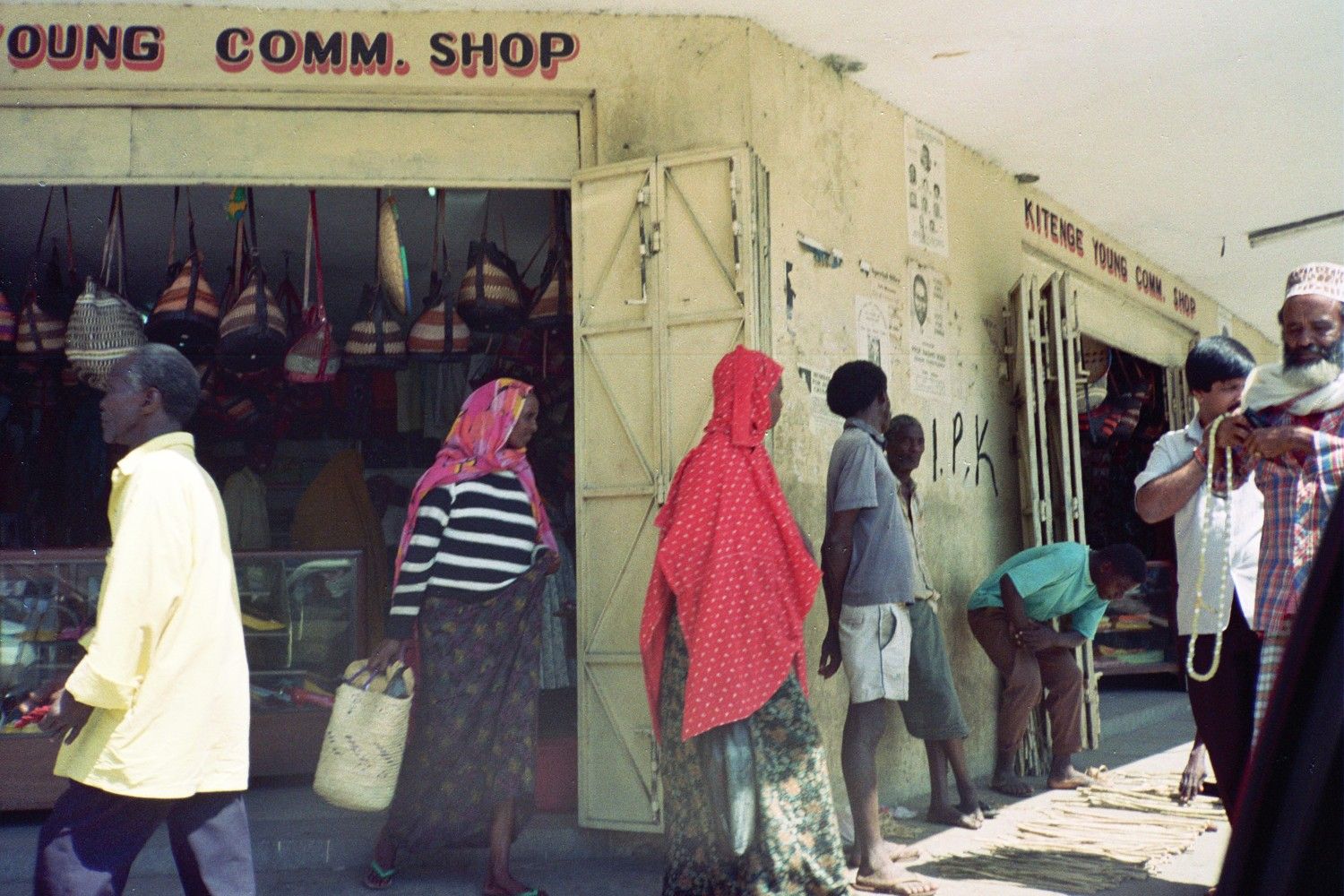
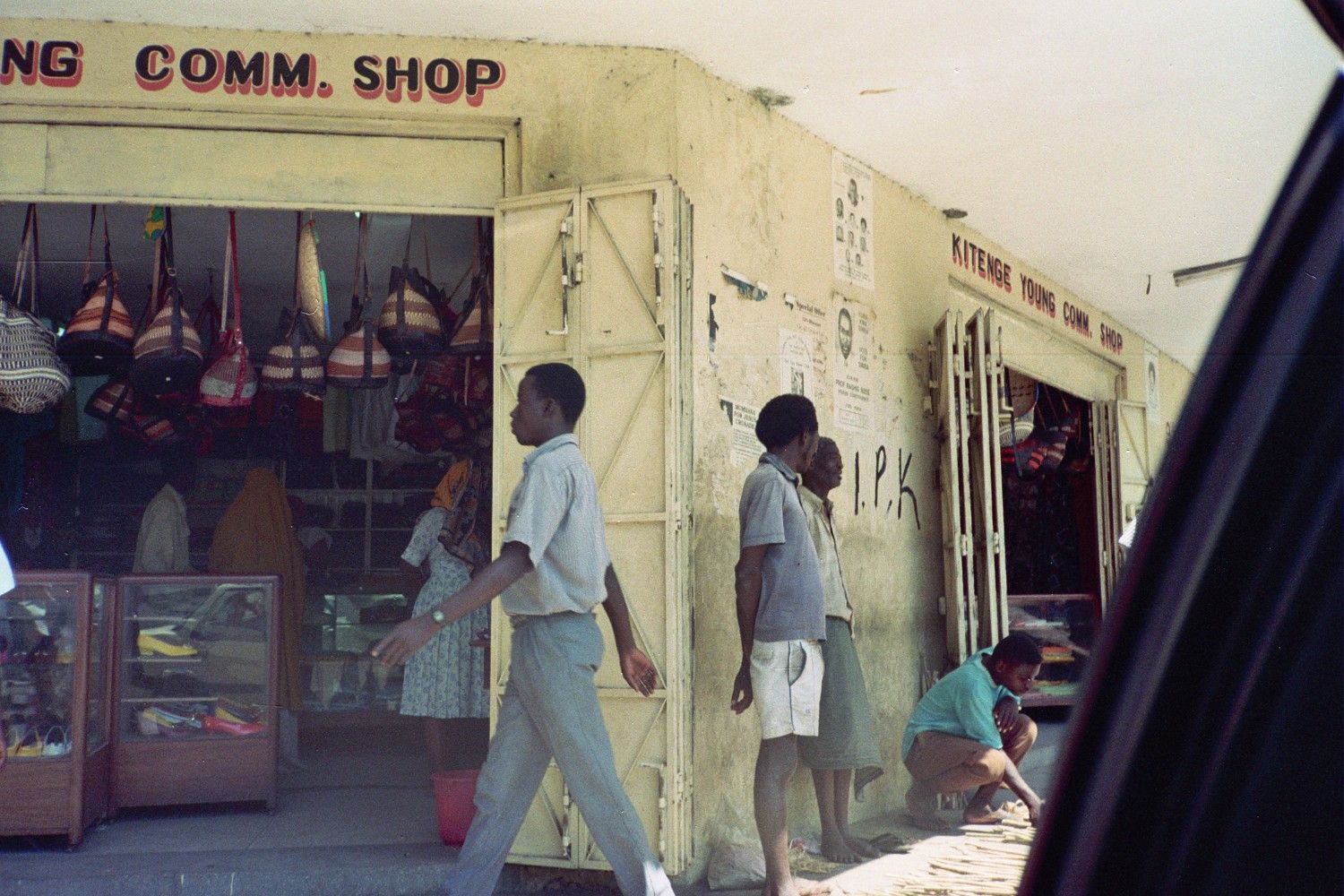
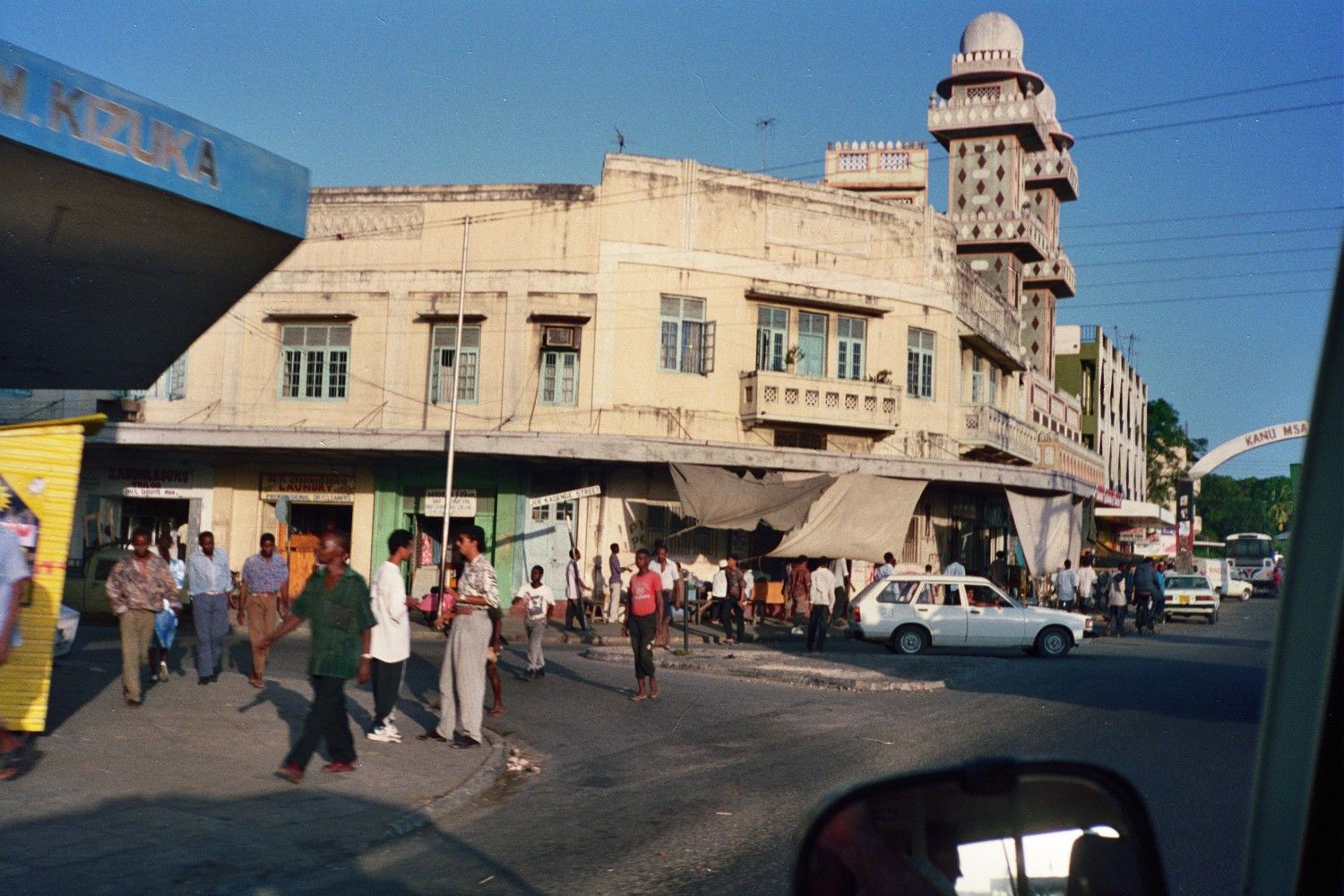
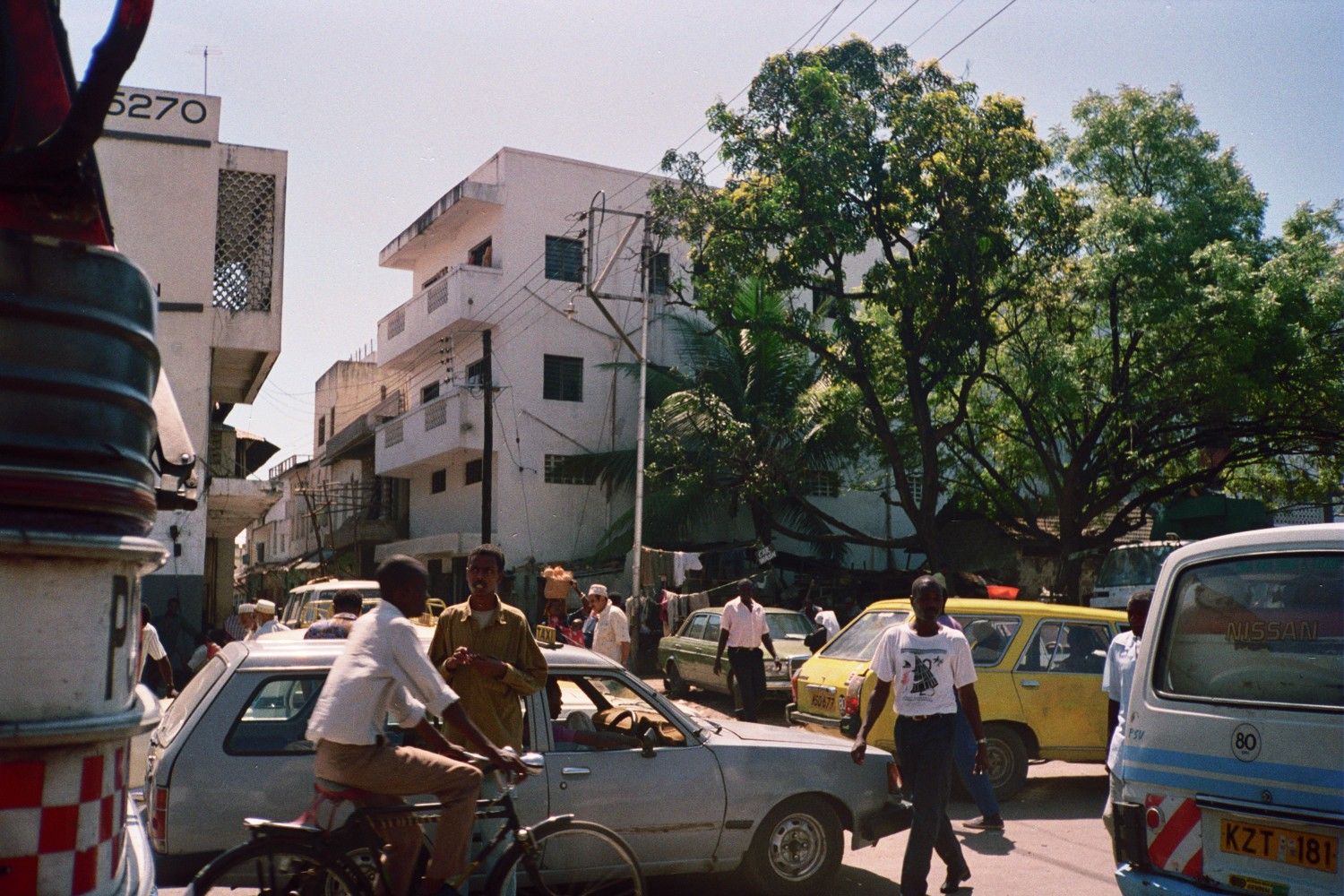
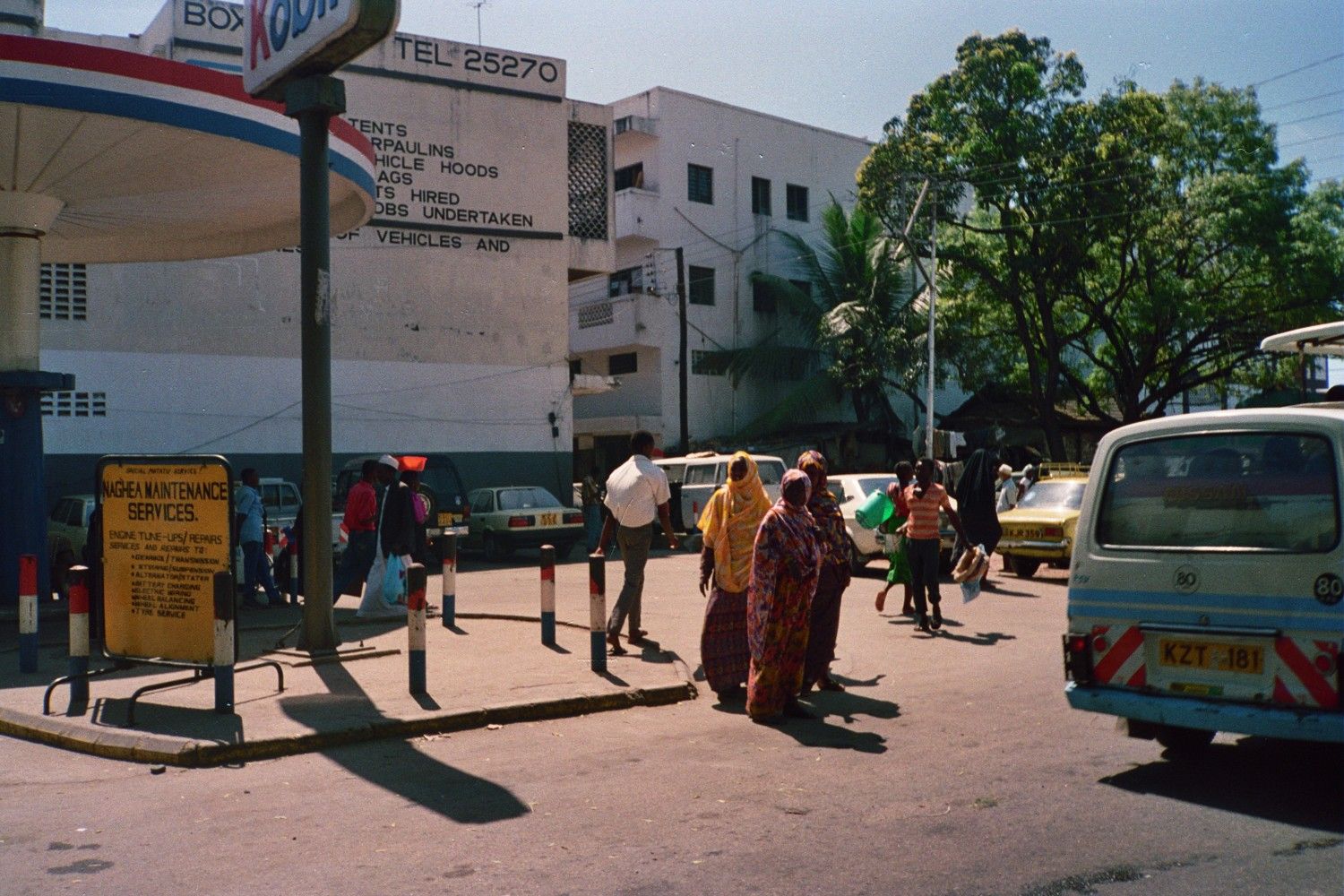
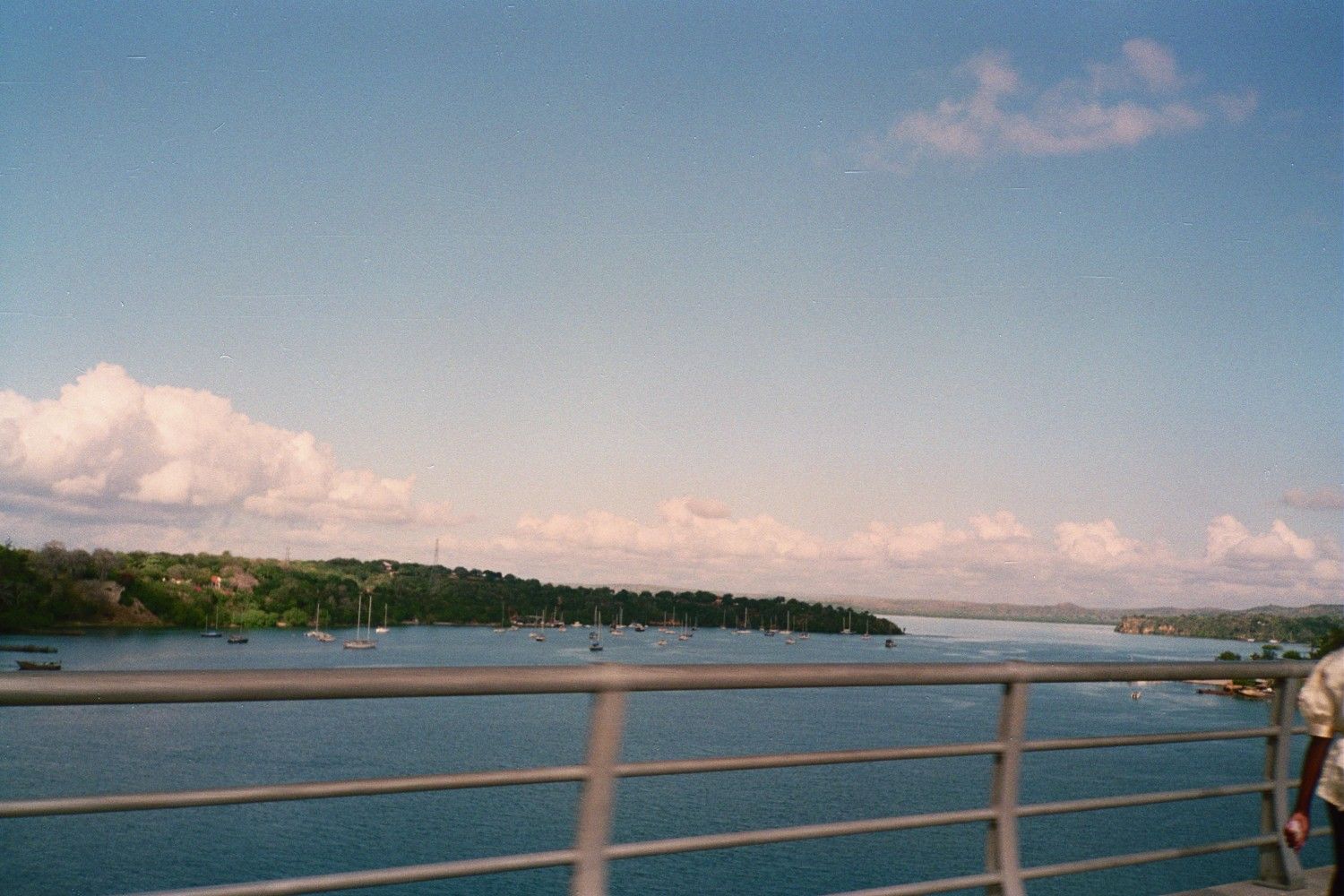
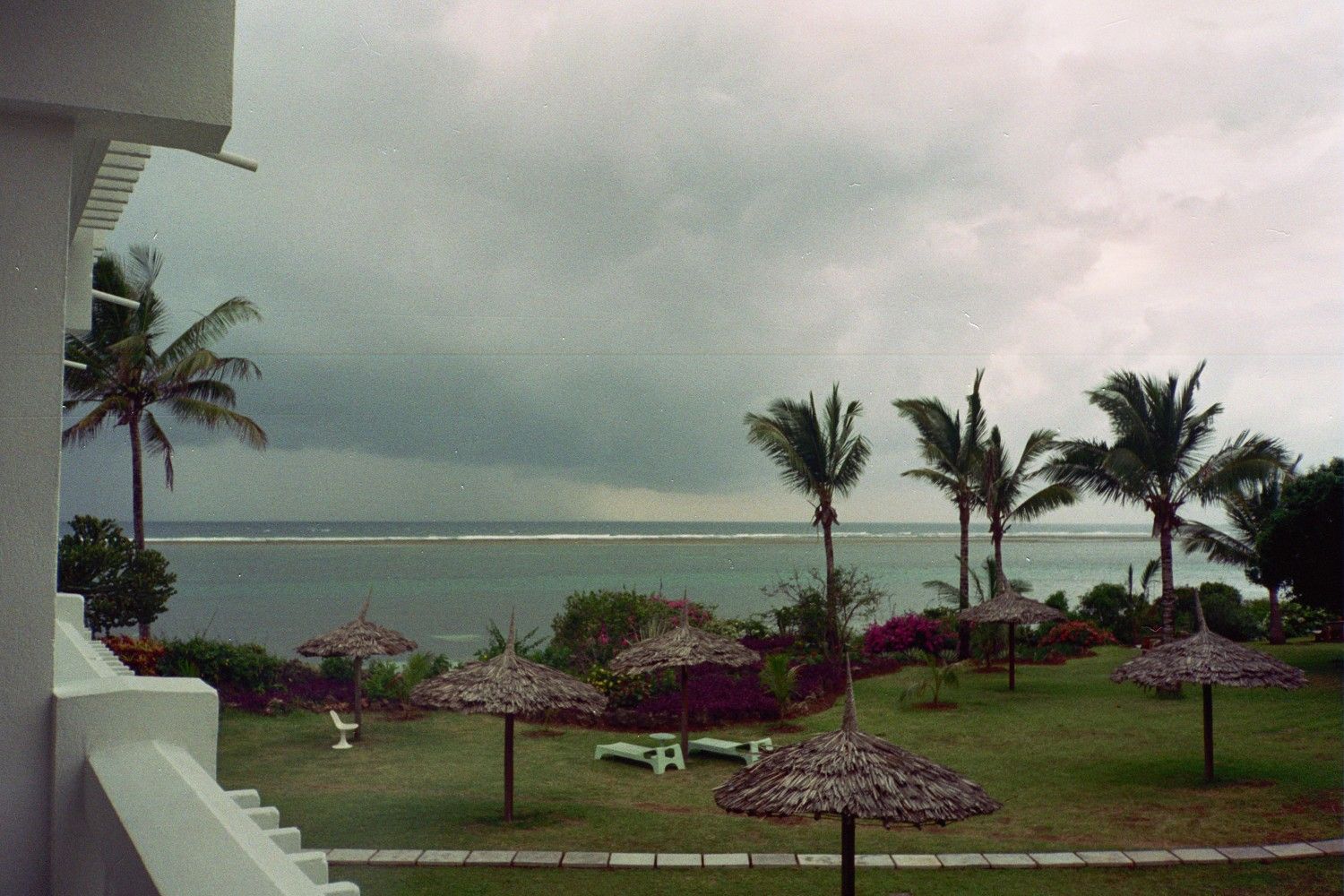
We’ve rented a beautiful resort right on the ocean. The UNOSOM (the official name of the UN in Somalia) Welfare office is paying us for the rooms so the troops have a free R&R facility. It is in Mombasa that I coined the term “mzungu in paradise”. There are clubs in town you walk into and find yourself literally attacked by some amazingly pretty African women. They grab you, they get in front of you, they jump into your lap, they pull you on the dance floor and they give you the “Kenyan handshake” (where they reach out and grab your crotch – a very unique, and effective, way of gaining your attention).
Now I know how someone like a Mick Jagger or Rod Stewart feels like. I think its a temptation very few mzungu pass up. I walked out of one place with two American soldiers and one Kenyan friend. The Kenyan spoke Swahili and overheard one of the doormen exclaim in Swahili: “What’s wrong? Four men walking out without women? What’s going on inside?”
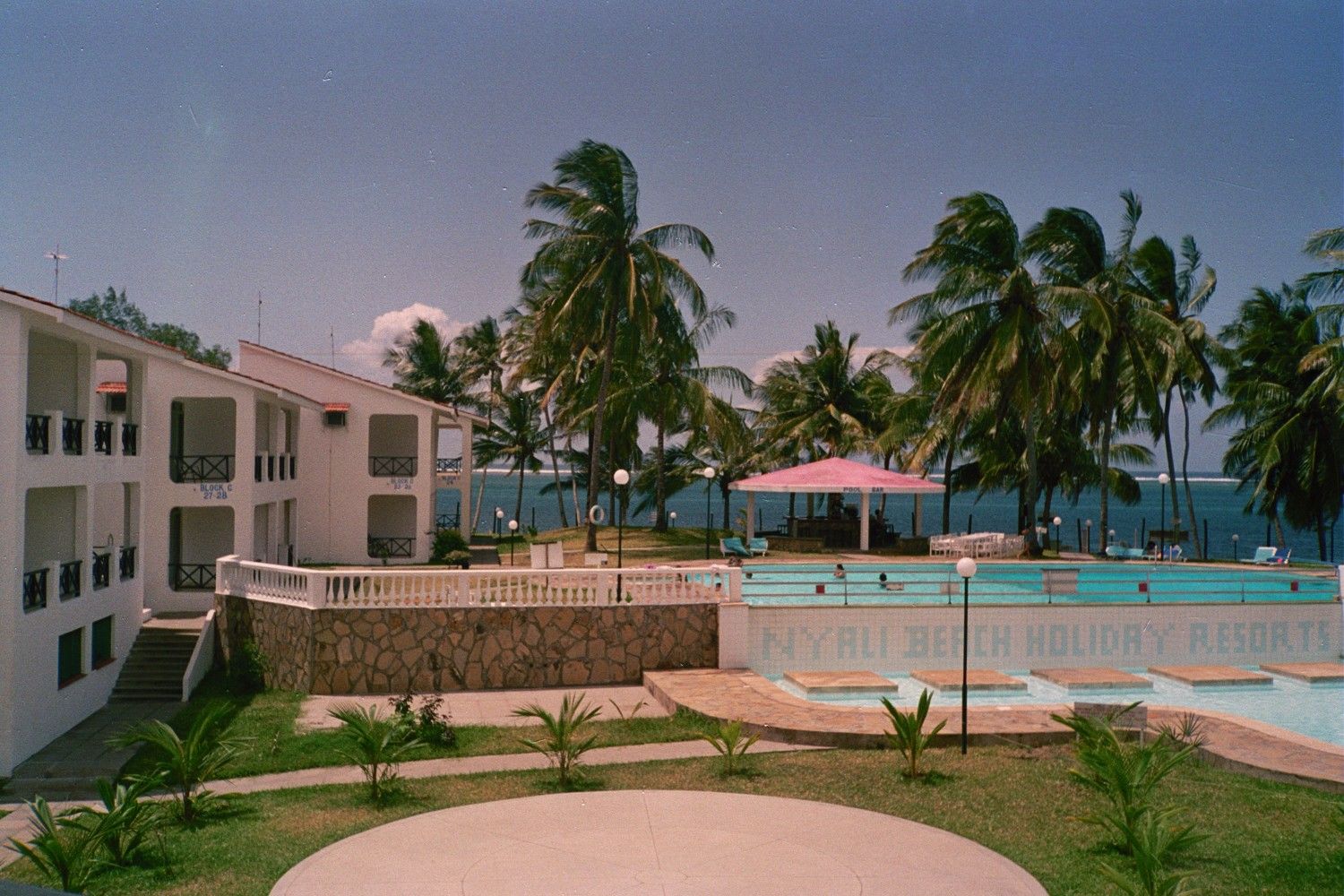
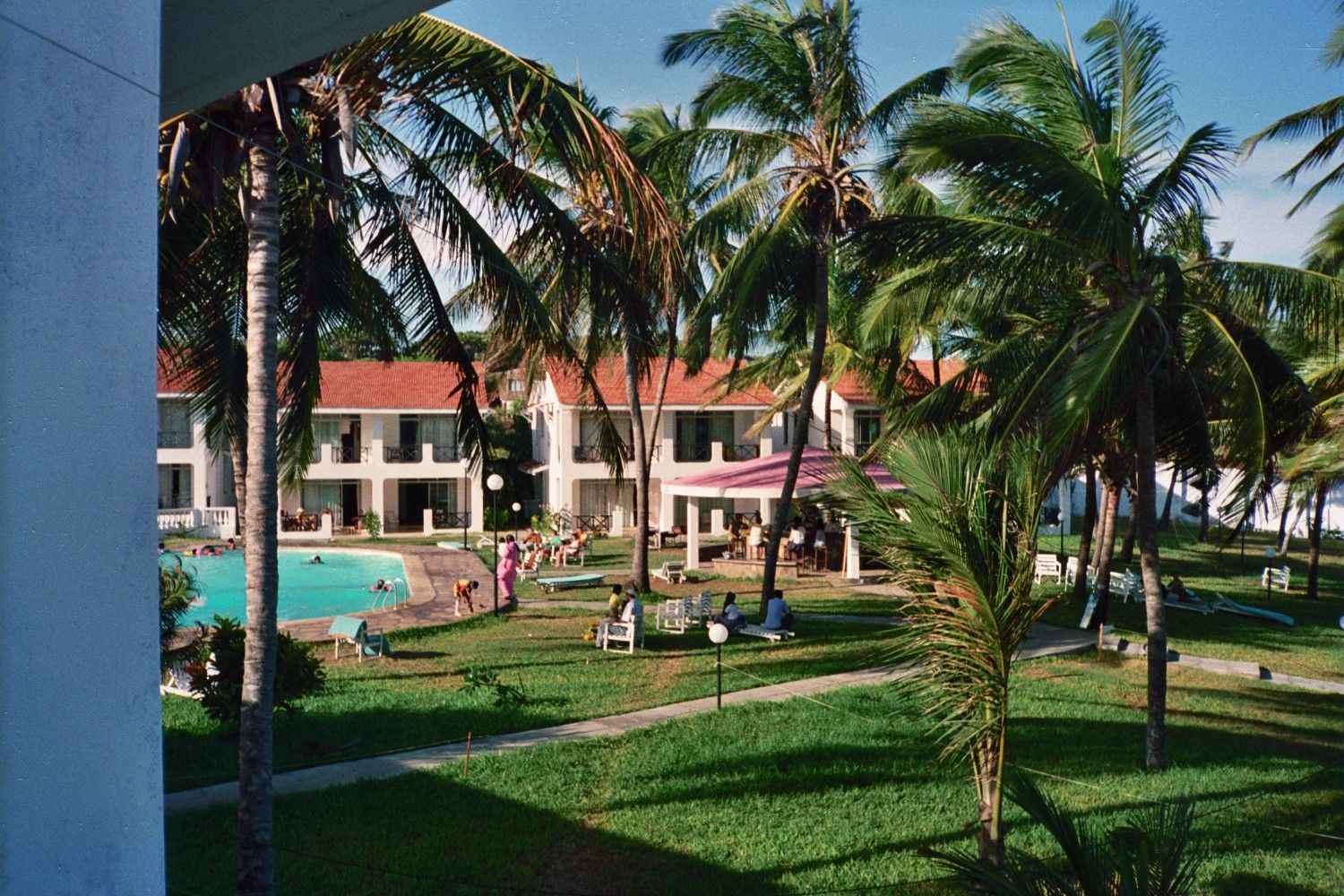
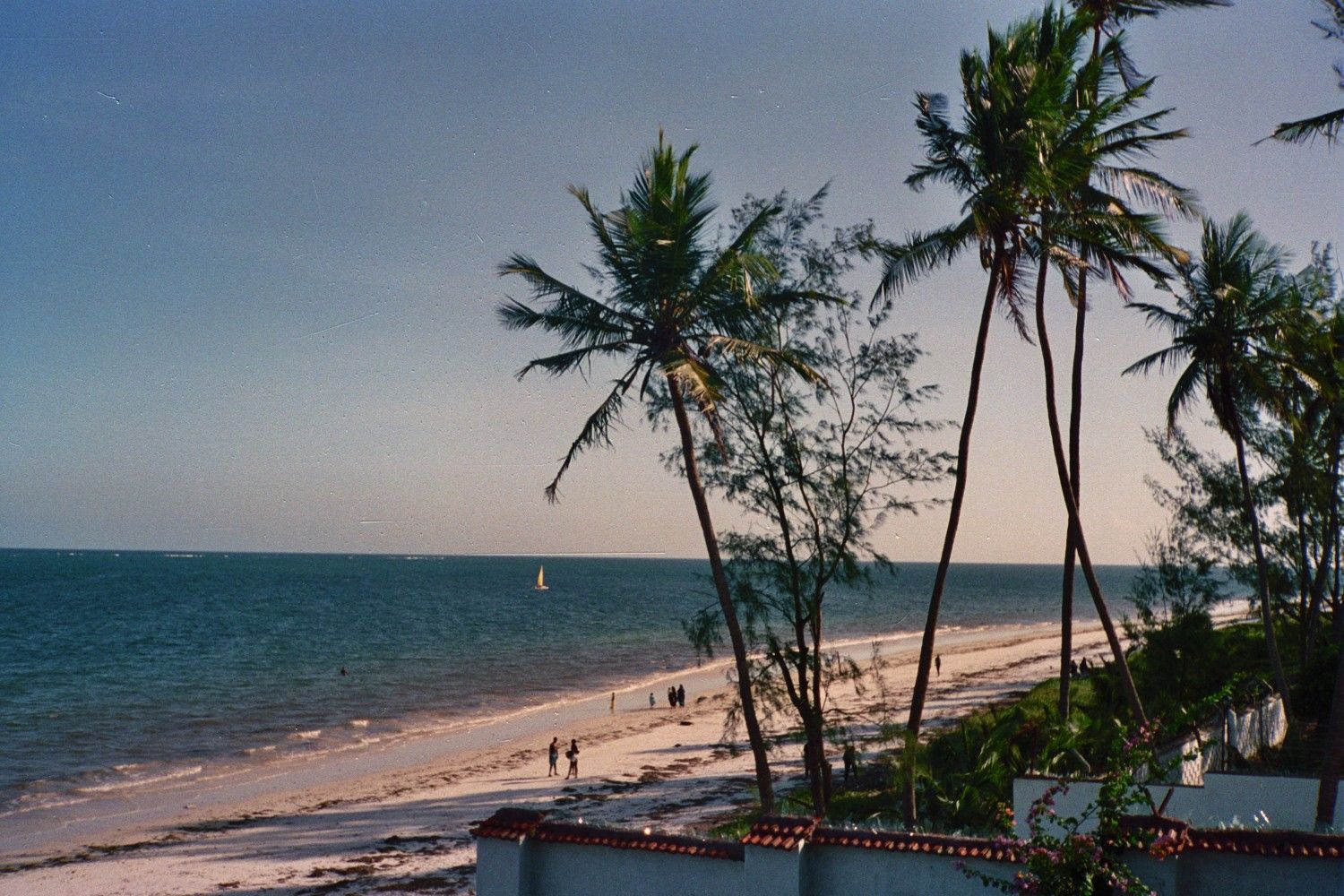
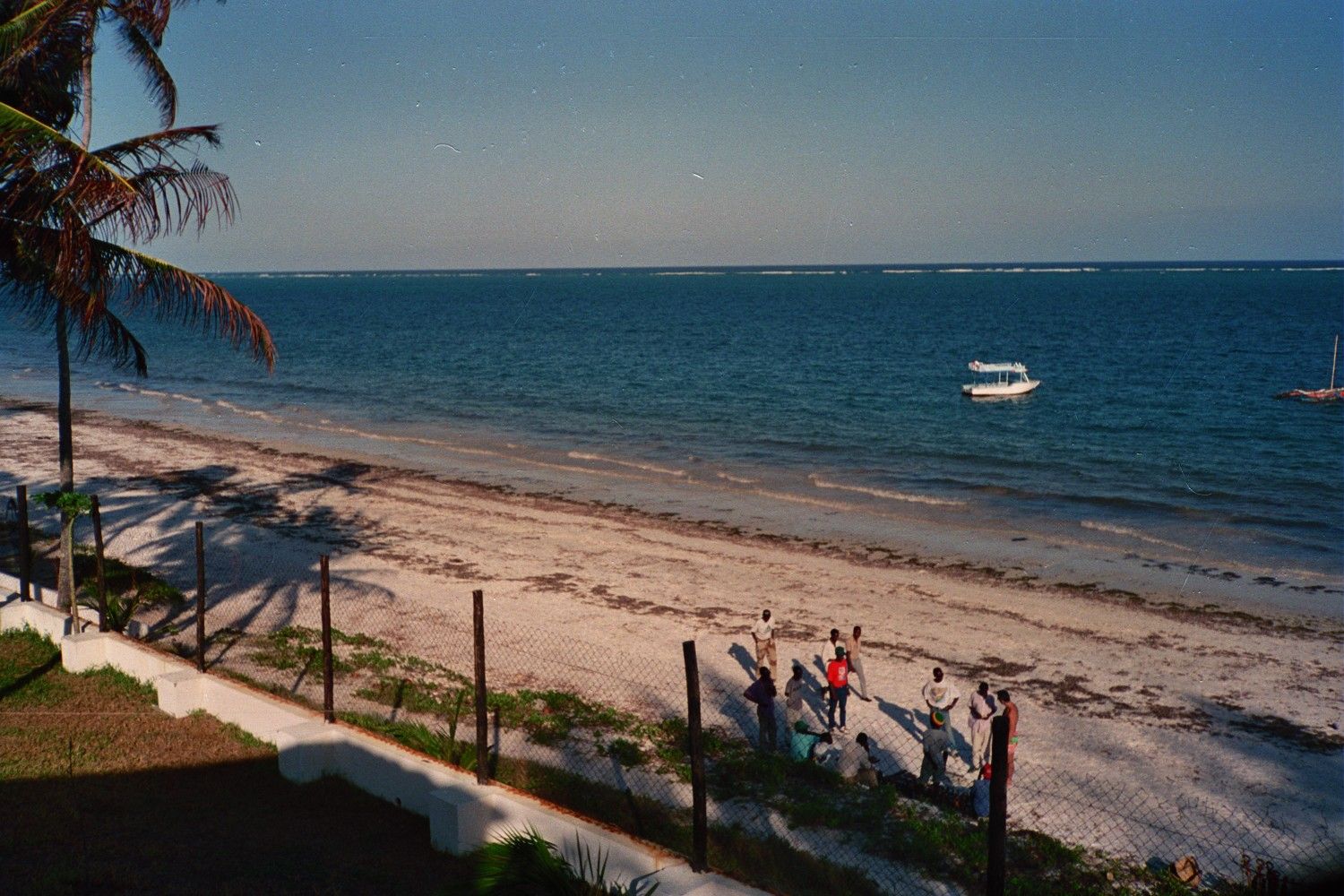
Needless to say, the soldiers play the whole thing for all its worth. Two Americans had four girls fighting over them to see who would take them home. An Australian approached a group of girls and said he wanted them to star in a porno film. When they were willing he got more graphic in what he wanted them to do. They became more enthusiastic. He finally told them that he was just kidding. They followed after him pleading with him to make the film. It all revolves around money and security.
Most of these girls are unemployed. Some are very bright and would do very well in a country with more opportunity. I was told that some Norwegian soldiers met some of these girls, fell in love with them, and wanted to bring them back home to Norway as their wives. On the other hand, four Australians and some Canadians went home testing HIV positive from their Mombasa encounters.
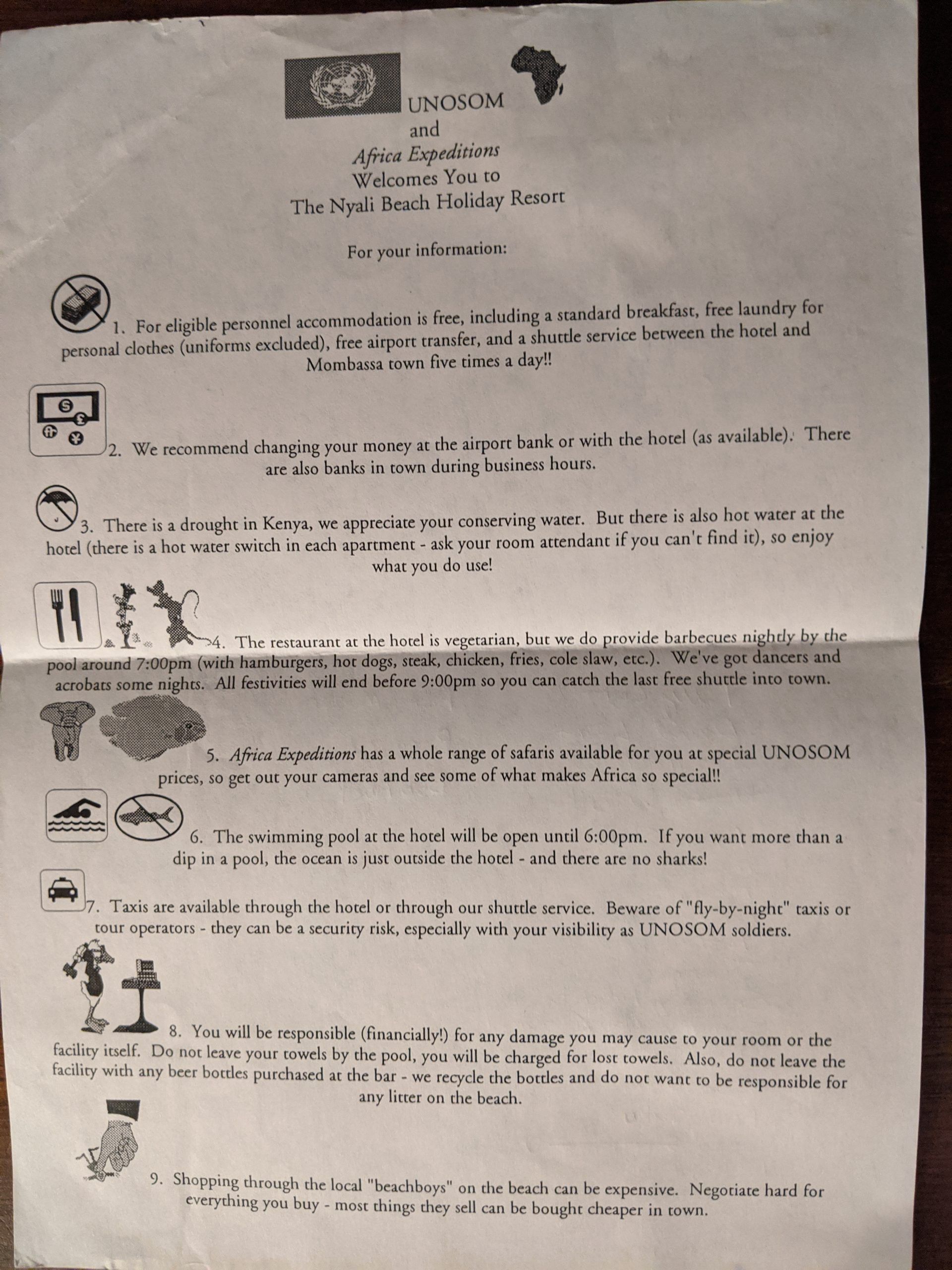
Its easy to see how these soldiers could go overboard here. Most of them have spent between three to six months straight in Somalia (which most of them think is a complete shithole) and come to a resort right on the ocean and access to all the unique night life in Mombasa. Mombasa even has a Hard Rock Cafe now.
I talked to one American special forces soldier. He had been on 60 missions in Somalia and been shot at on 58 of those. He and his friend were talking about demolition missions where they had to blow up weapons and explosives they found on the Somalis. They were clearing villages a couple of miles from the demolition site. Sometimes the people would not leave – they did not believe the warnings. He and his friend would come back to find the entire village leveled and the people cowering under what was left of their houses.
They all complained about the increasing frequency of the mortar attacks. One guy had gone out to the latrine and – for the first time in a long while – forgot to bring his flack jacket and helmet. Sure enough a mortar attack started and he found himself cowering in the latrine without his jacket and helmet while mortar rounds came closer and closer. At least the Somalis were not known for their good aim. Two American special forces soldiers were in the second to last car (which had very little protection from bullets) in a convoy. As they rounded a turn three Somalis opened fire with machine guns at insanely close range. For a very long 45 seconds there were tracers (bullets) everywhere. The only casualty was one flat tire.
I had a chance to meet American General Montgomery in August. He said – back then before things became very, very bad – that if he closed his eyes he could picture Vietnam. A military operation run by beaurocrats. Everyone seems to be pissed off at the UN’s handling of the whole thing. The soldiers also laugh at CNN. They say when you see 1,000 Somalis protesting the US on TV, there are 5,000 somewhere else in a pro-UN/US rally (if 5,000 trees fell in the forest and no one heard them, would they make a sound?). They say CNN was being led around by Somali guides and negative coverage could be dangerous for them.
The two special forces soldiers in the convoy above were actually helping to start an orphanage outside of Mogadishu. They say the amount of gratitude these children have for all the people helping them – including the soldiers – is indescribable. Its the first time people have actually given them things.
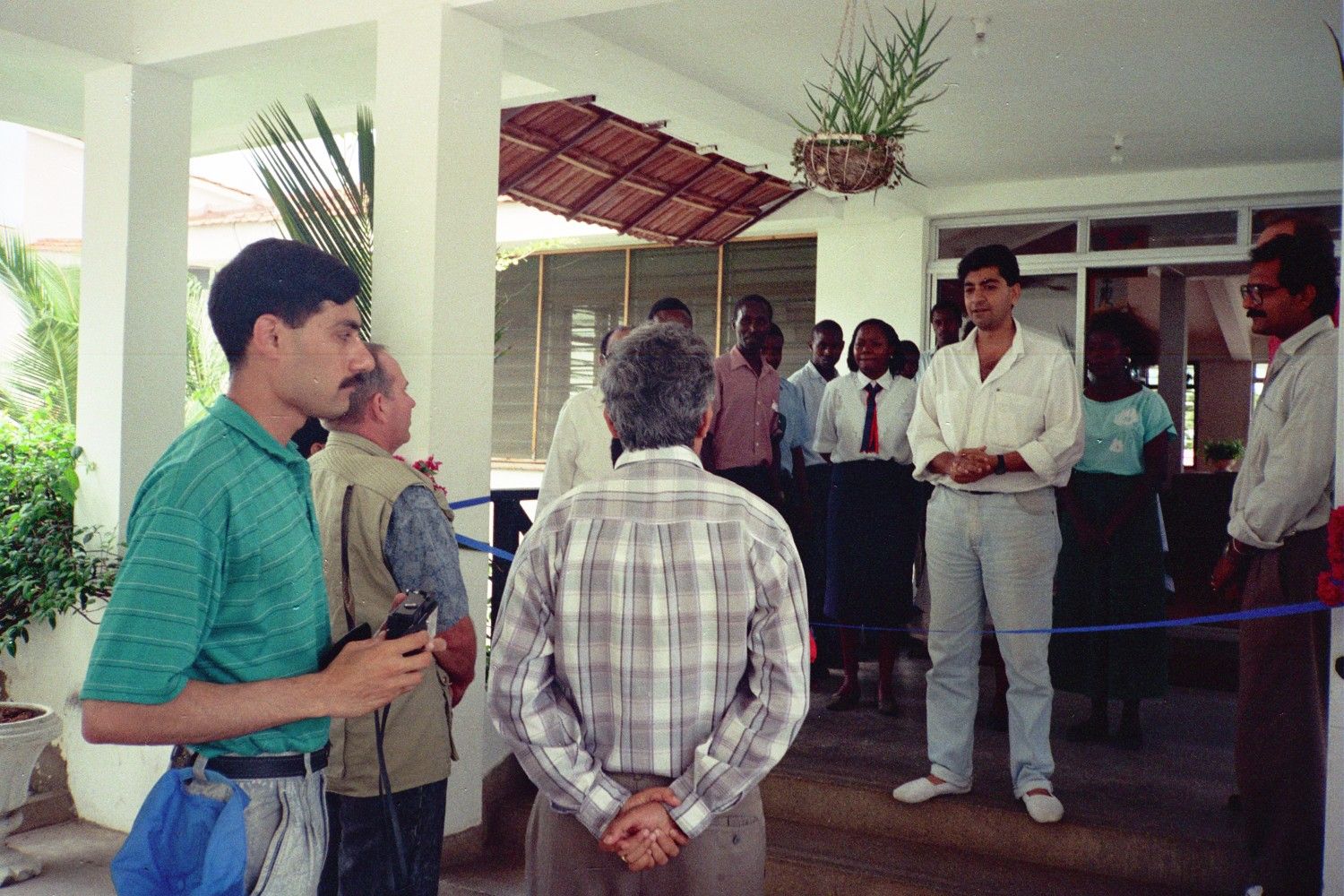
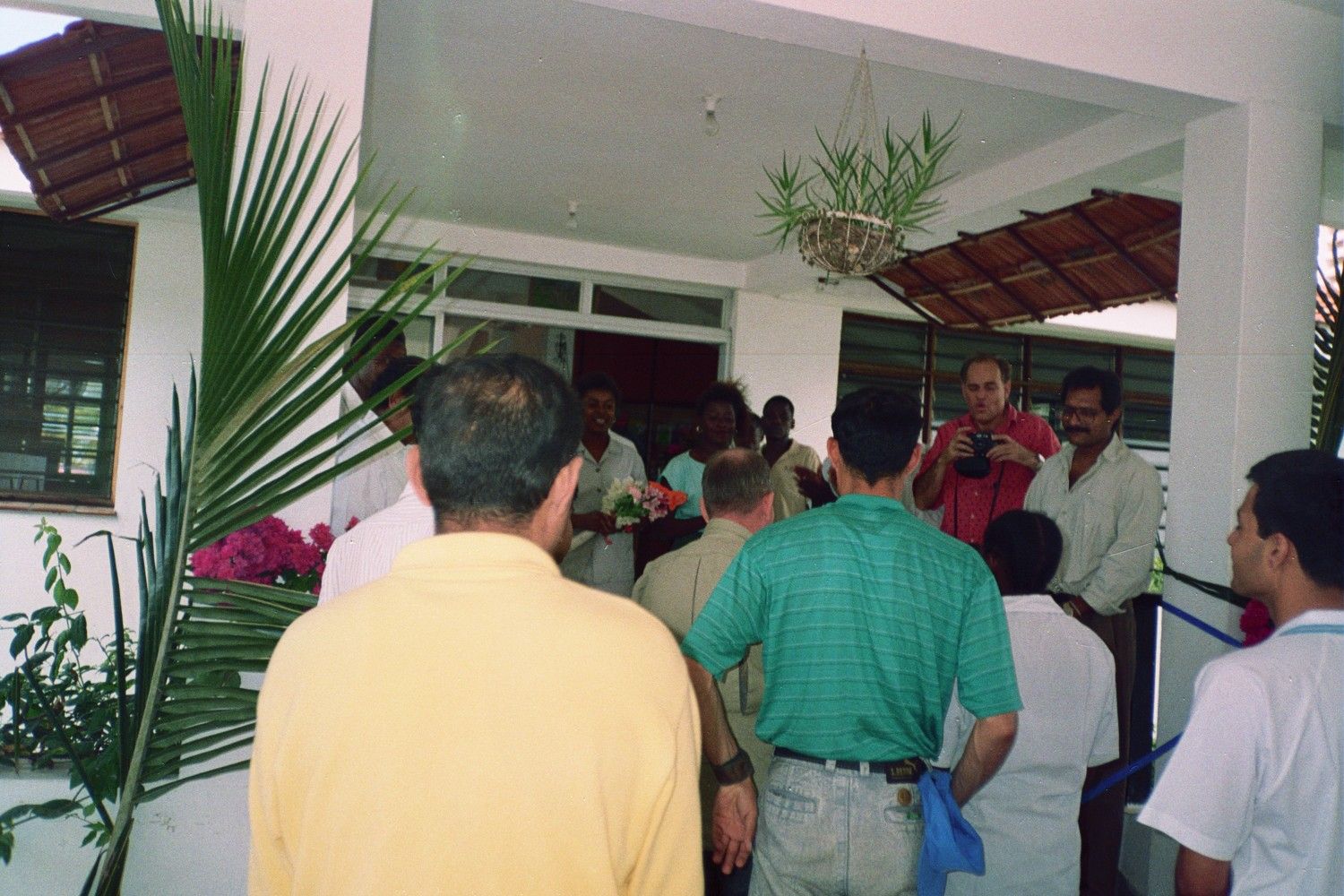
So what is it like working in Kenya? Chaotic. Everything takes about four times as long as in the States. It’s estimated that 70% of the economy is controlled by what are called Asians – who are actually people of Indian descent. They are mostly descendants of the Indian coolies the British brought over 100 years ago to build the railroads. They eat, drink and sleep business. Their reputation is one of paying Kenyans lousy wages and taking any shortcut possible to make money. Unfortunately, most of the ones we’ve done business with match this rep.
Systems are alien creatures here. Supervisors have to constantly watch workers. There is very little sense of creating comprehensive programs with strong controls to eliminate the need for constant supervision. Labor is unbelievably cheap and it’s easy to just throw people at the problem. We introduced a new cash register at the facility we were running at the coast. White man’s magic. It took the staff weeks to figure out simple repetitive functions on the machine. It also meant we didn’t have to constantly watch the bar it was installed in – once they figured it out. We have a drink there called a blow job. Needless to say the few people who have ordered this drink always save the receipt. Going back to Somalia with a receipt showing they were able to by a “blow job” in Mombasa is a great story.
The economy is going through a transition – to be kind. The Kenya Shilling went through a devaluation in March from 35 to the dollar to over 70 per the dollar. Kenya’s strong, stable middle class is being pinched by decreasing purchasing power. Kenya has had the highest population growth in the world for a number of years. The result of that rare thing called stability in Africa. More people with less resources. The government is laughably corrupt. Guns are coming in from Somalia. It’s all leading to a severe increase in crime. The most popular is armed car theft, followed by armed theft. Still not as bad as LA, but the trend is not good.
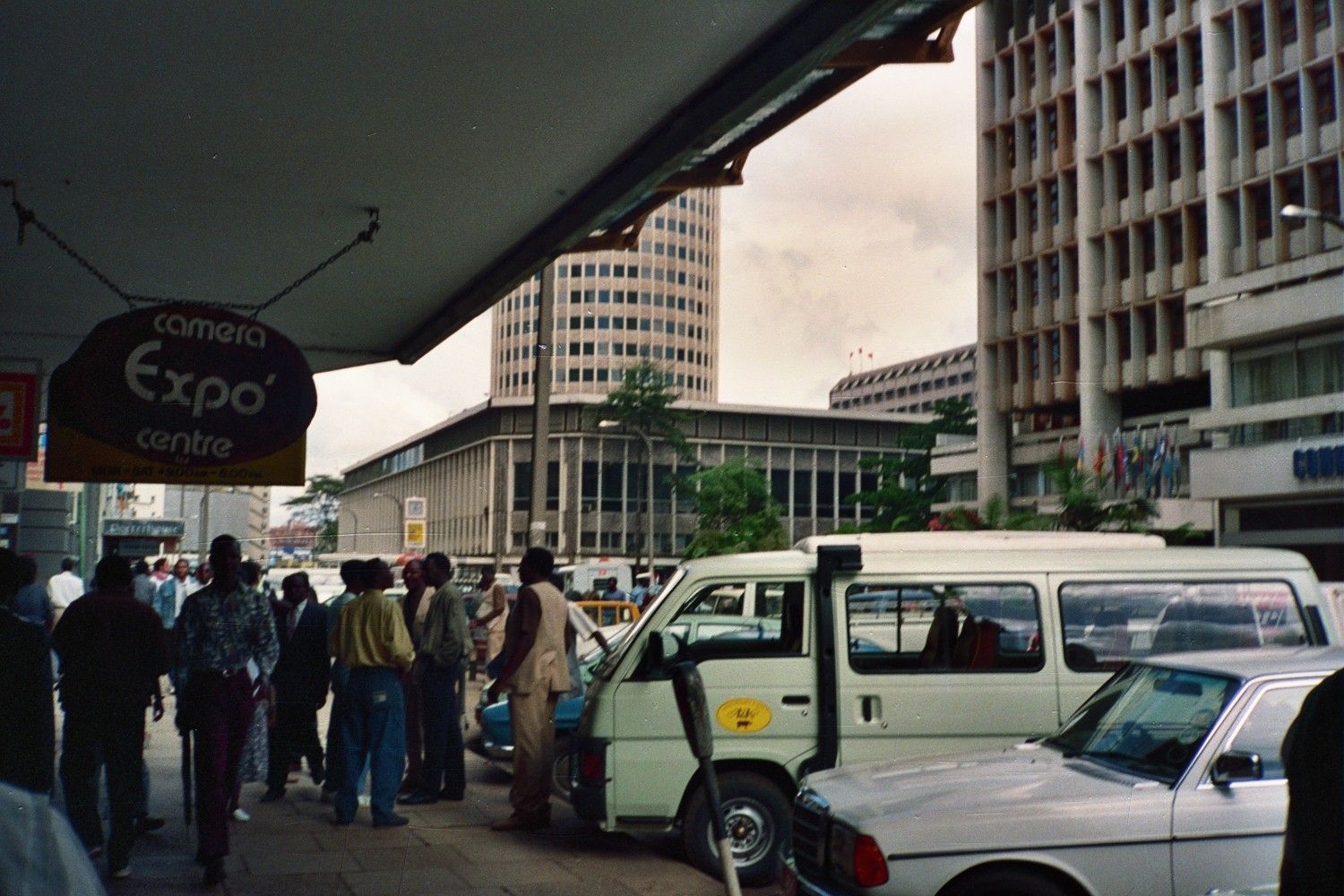
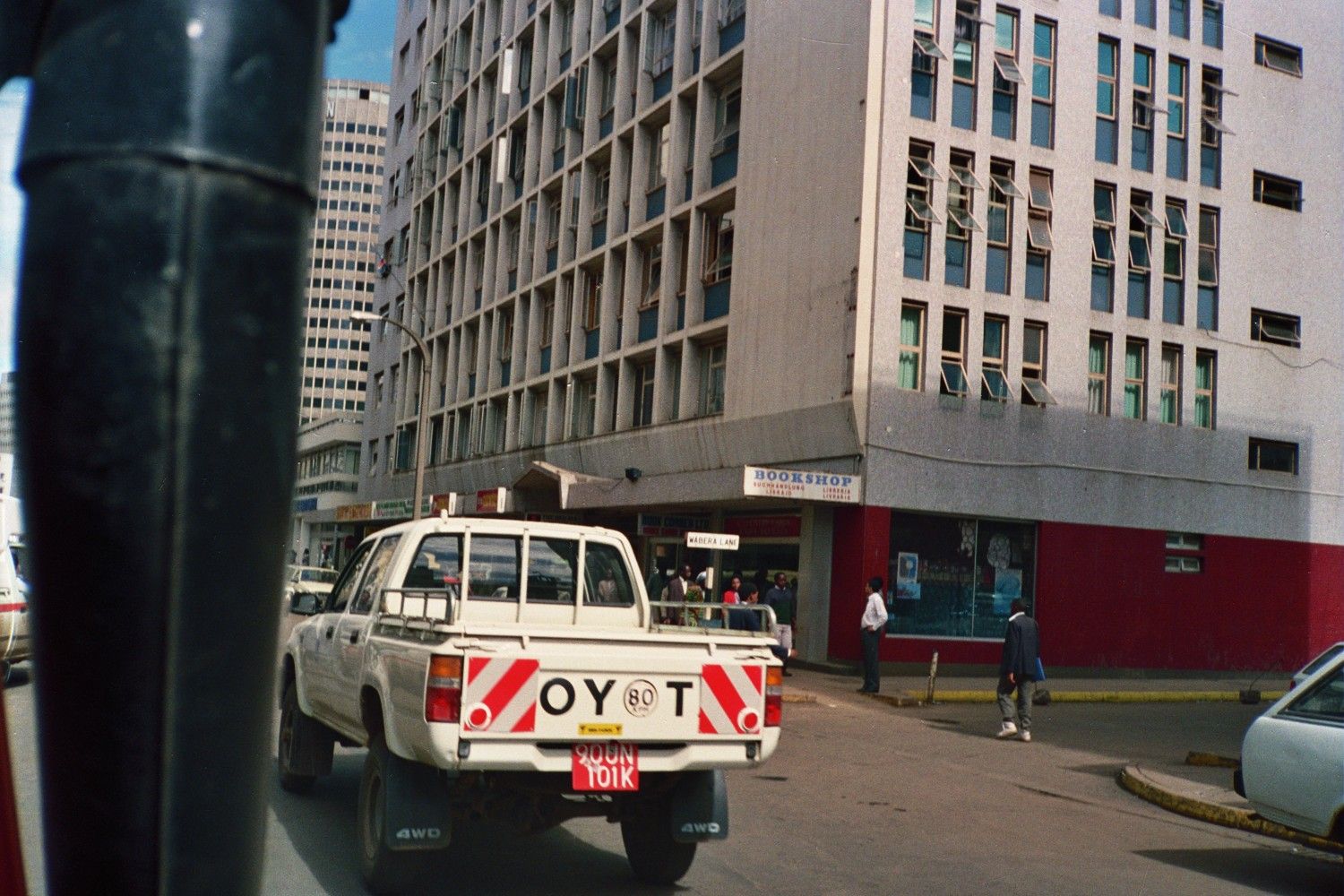
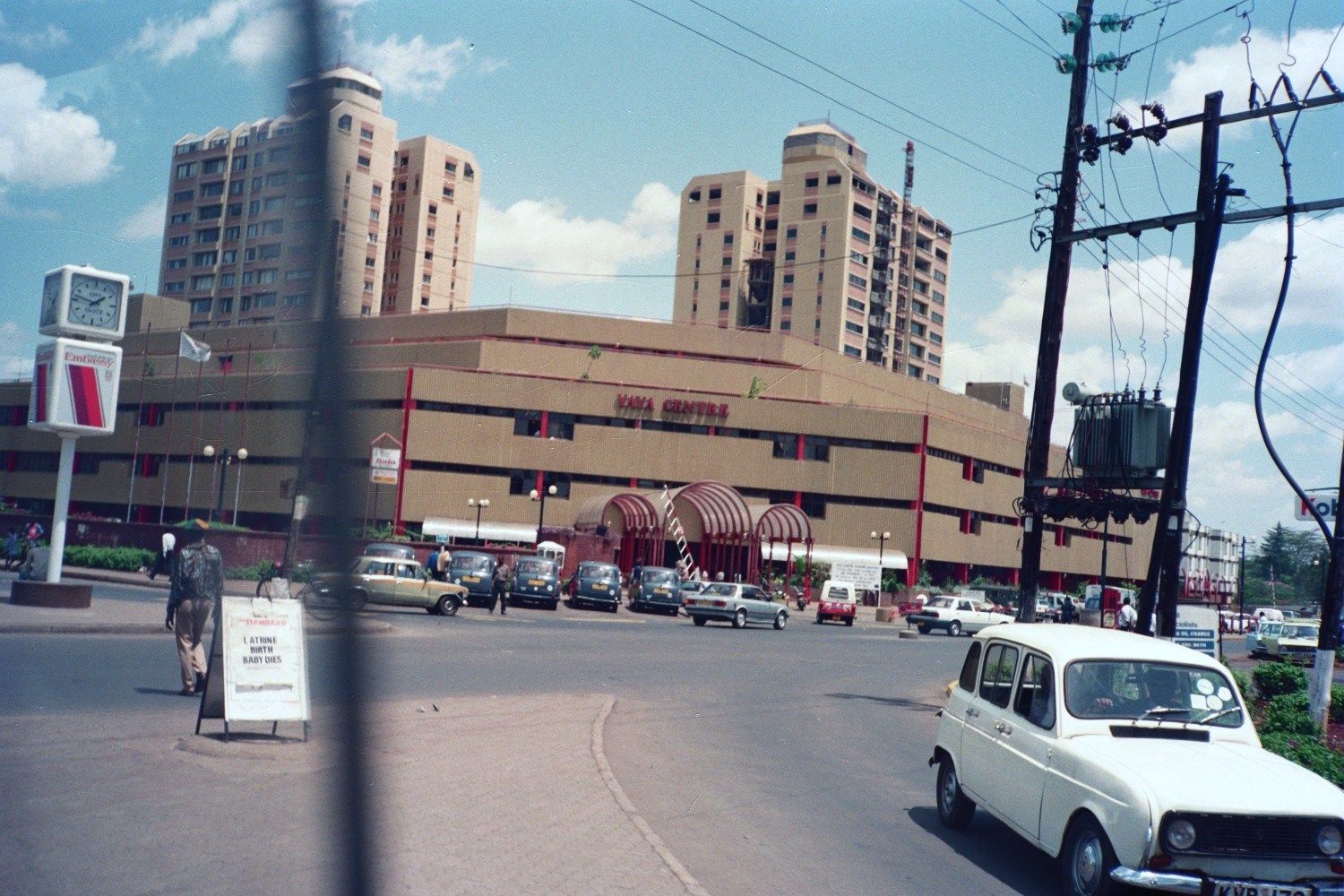
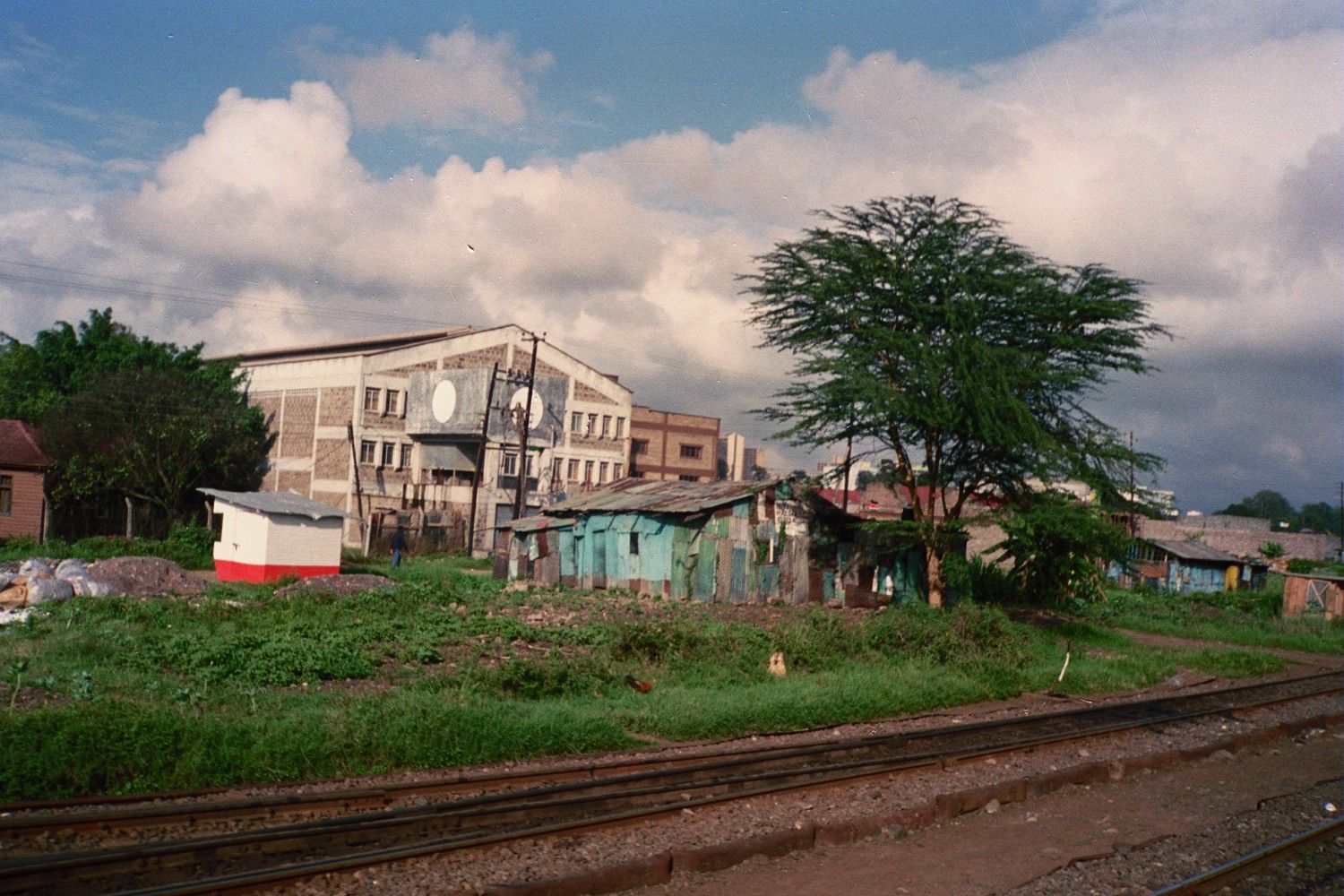
I knew I was in Africa when, on the fourth night I was here, we drove up to our office at night. I did a double take. Our night guard was actually a Masaii (a tribe known for their skills as warriors) in a red robe with a spear and a quiver of arrows on his back. A friend has a Masaii guarding his house. He says this guard with a bow and arrow is more effective than a traditional askari (guard) with a gun. This Masaii once asked my friend if he would be responsible if he killed someone. My friend said no, that he would take responsibility.
My first weekend safari was amazing. At a camp called Intrepids in a park called the Masaii Mara. The camp consisted of permanent luxury tents, which were nicer than most hotel rooms I’ve stayed in. There was just the camp, an air strip, an electric fence and miles of game. Three game drives a day, a wide open surreal landscape, open, infinite skies and thousands of wildebeest, zebra and antelope. I was less than 50 feet from a cheetah and four cubs as they tried to hunt and less than 10 feet from a pride of lions (in a land rover, of course).
I saw two lions stalk a baby water buffalo and get chased away by some bulls. A hyena chasing away vultures over a dead baby zebra. Crocodiles on a river bed just below me, waiting for wildebeest or zebra to cross. Hippos gurgling to themselves in a pool of water. A rare rhino wandering amongst the wildebeest. A herd of elephants feeding amongst baboons, warthogs and, believe it or not, a windmill. A giraffe silhouetted next to a lone acacia tree in the early morning Africa sky. I can’t wait to see more.
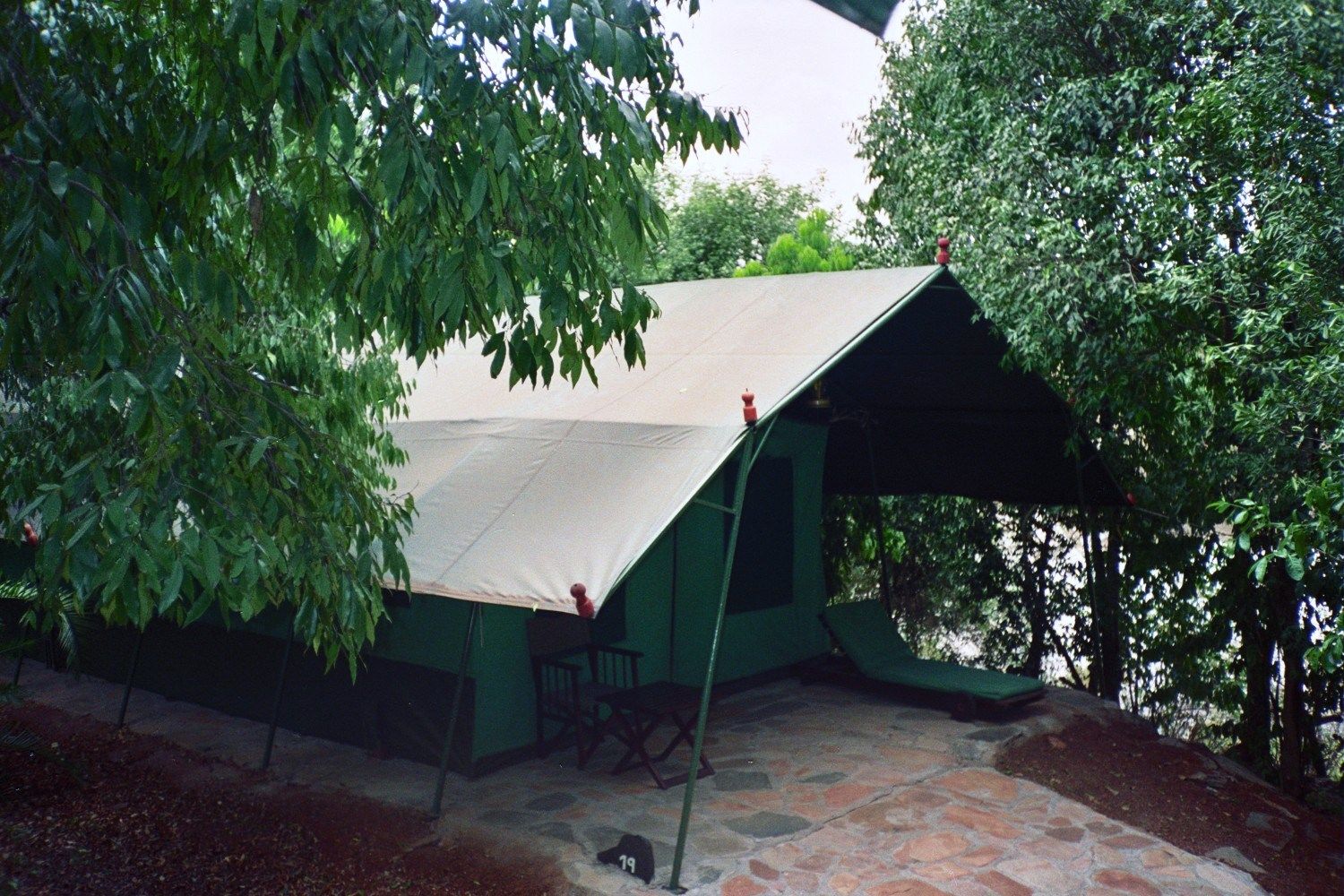
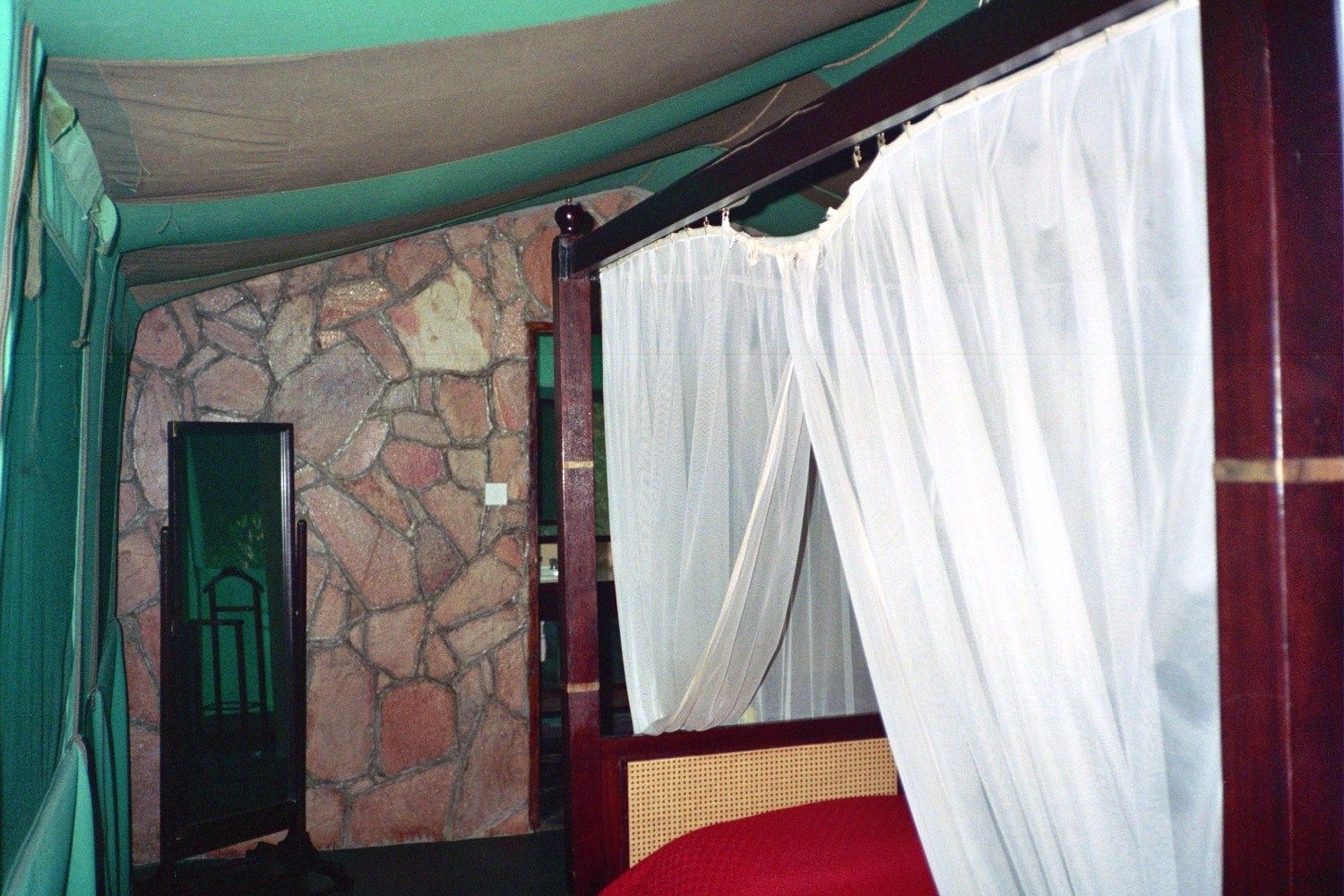
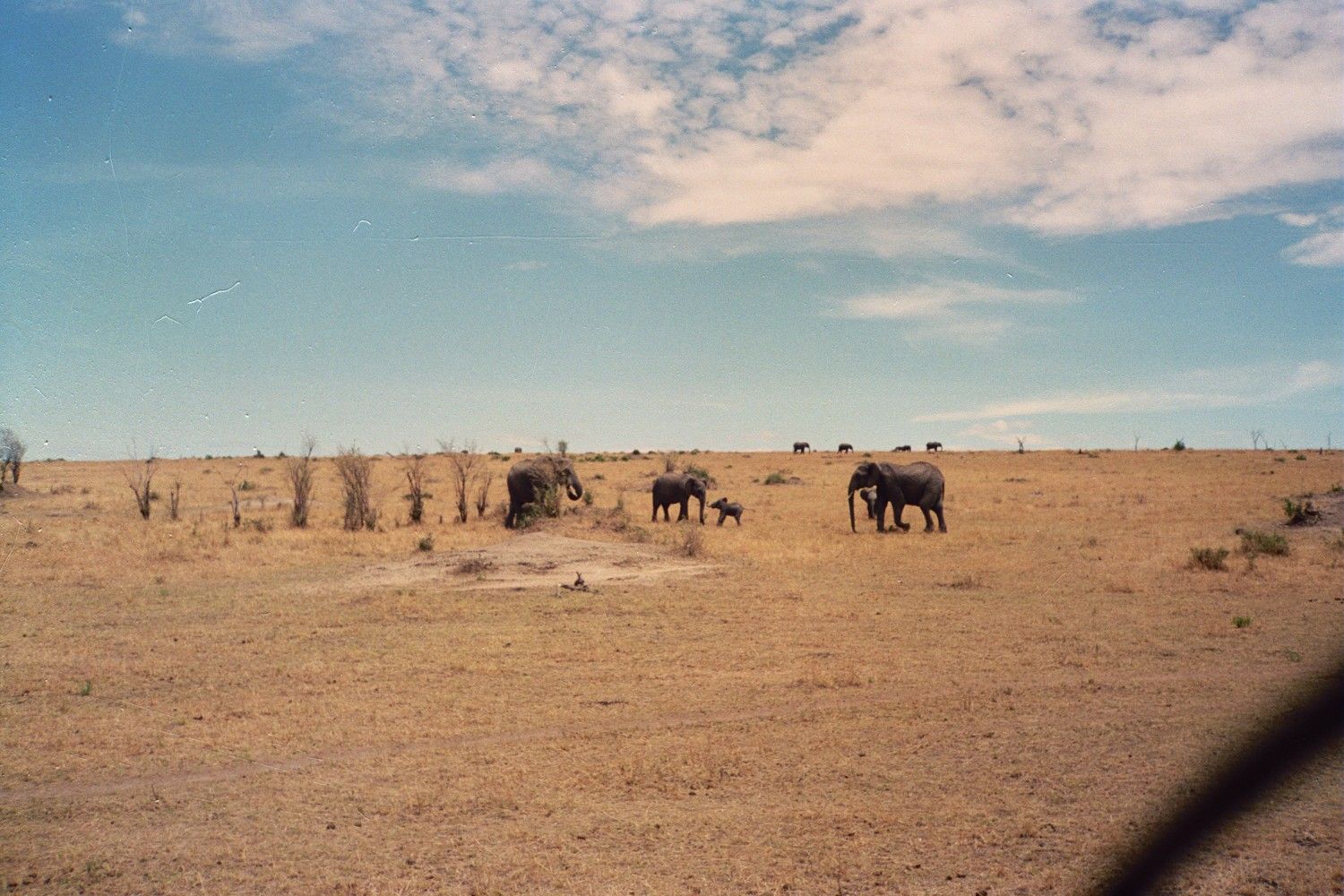
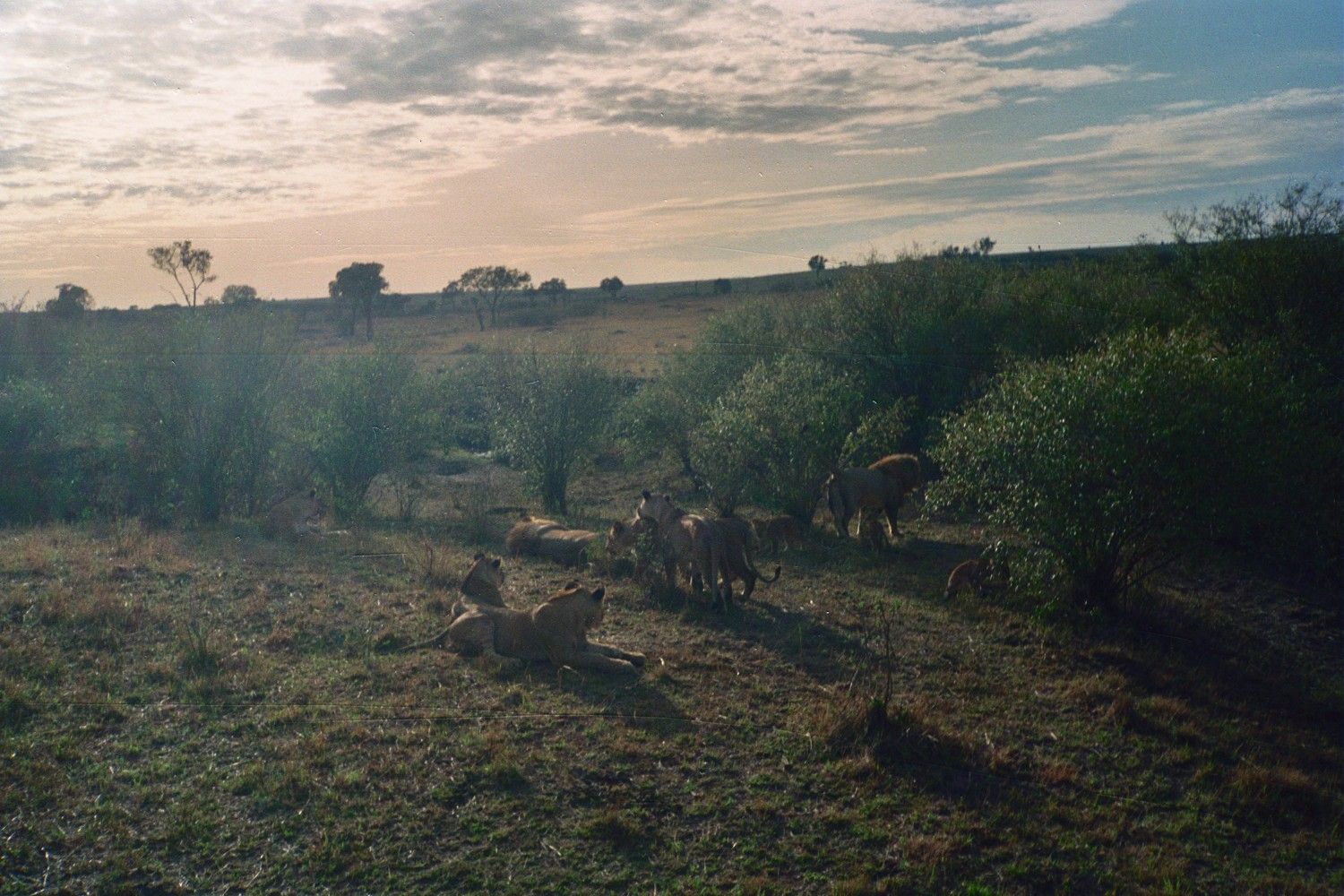
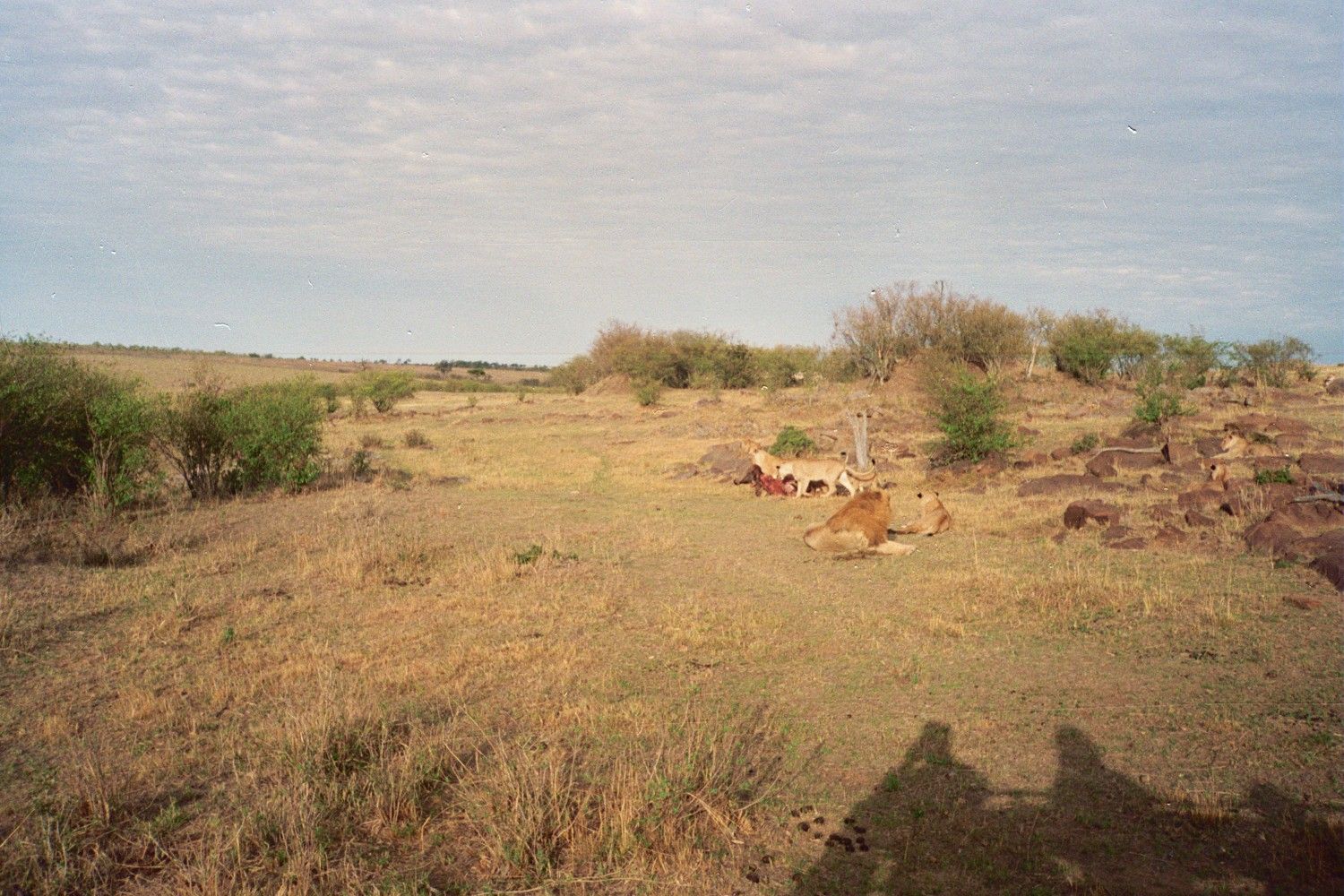
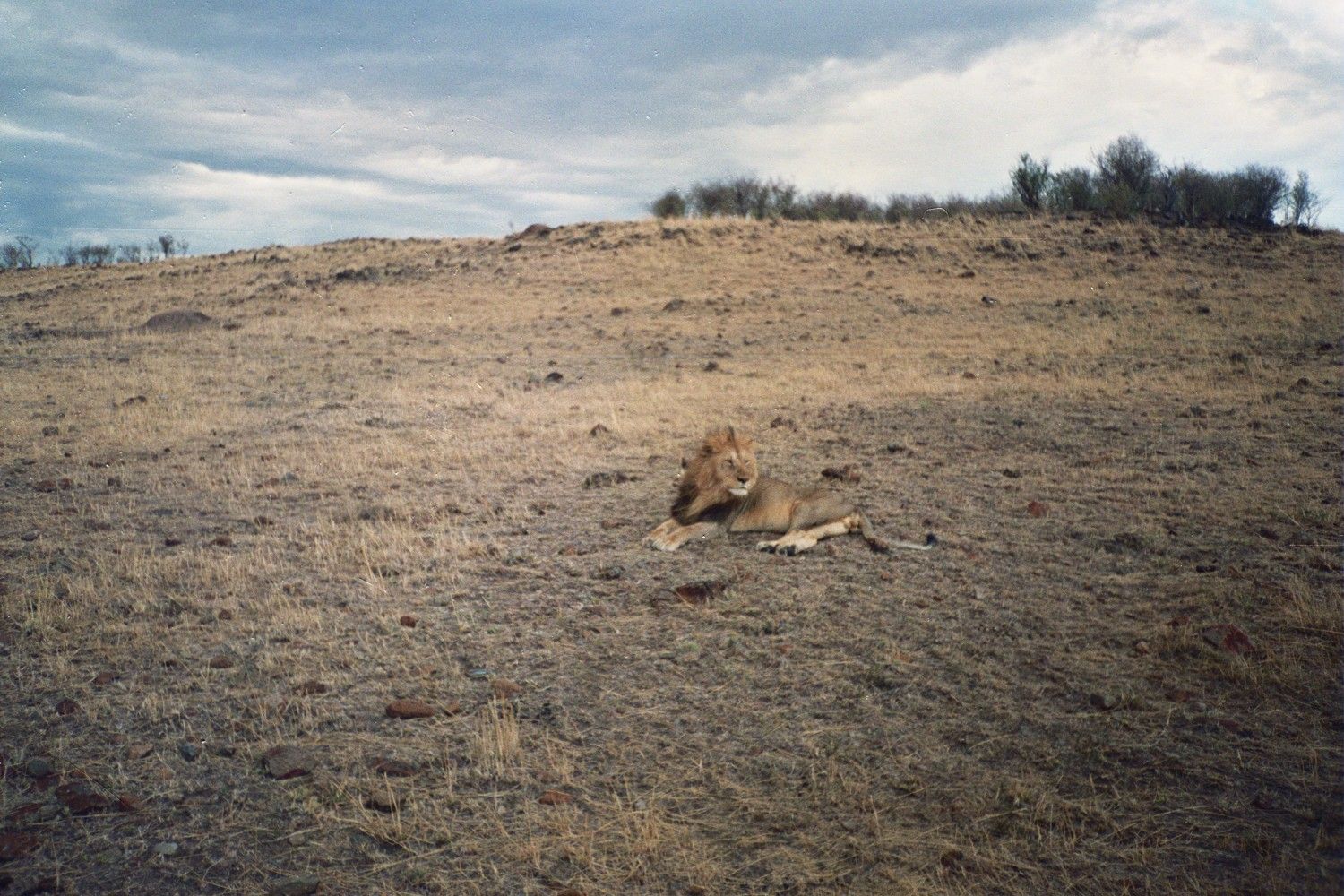
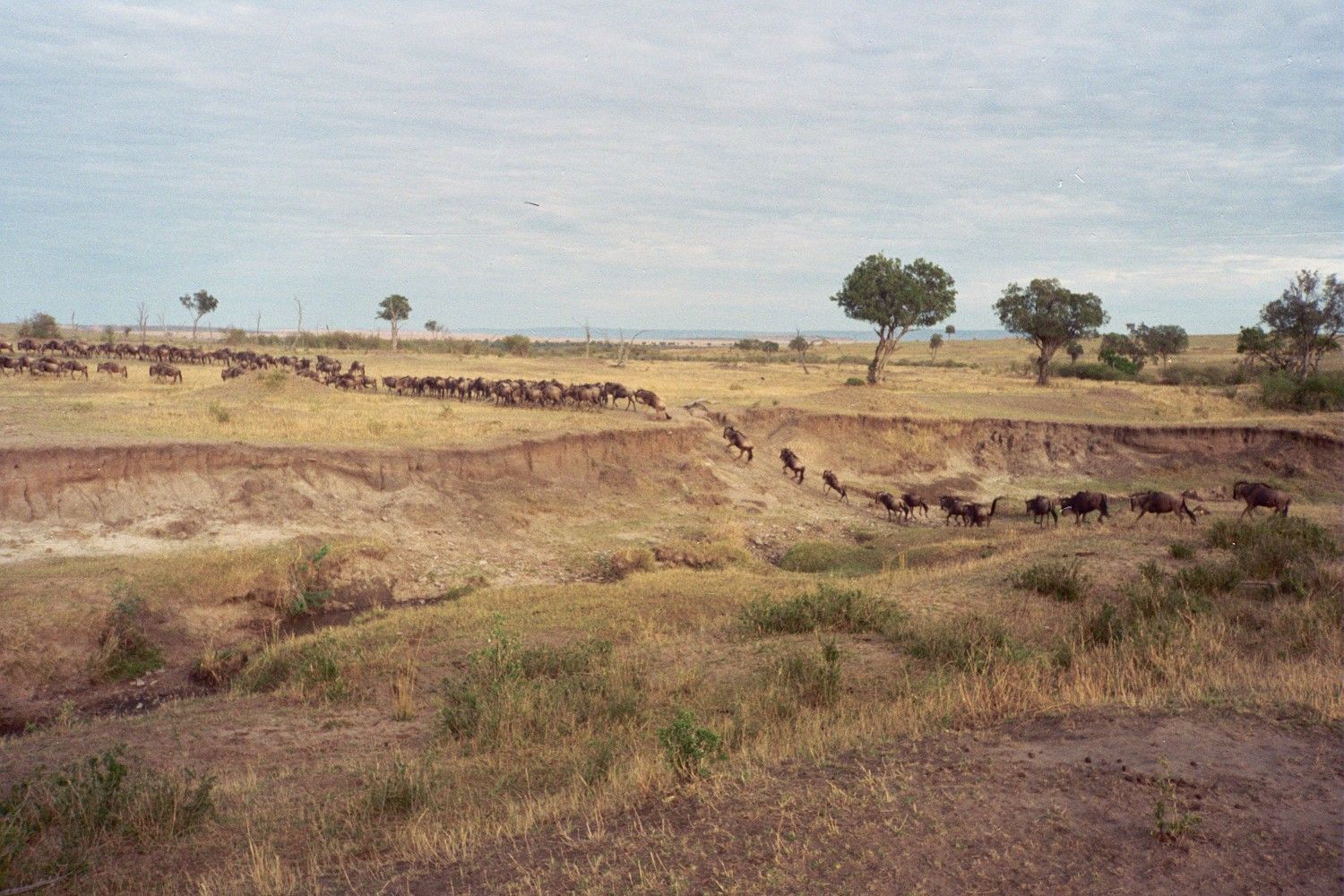
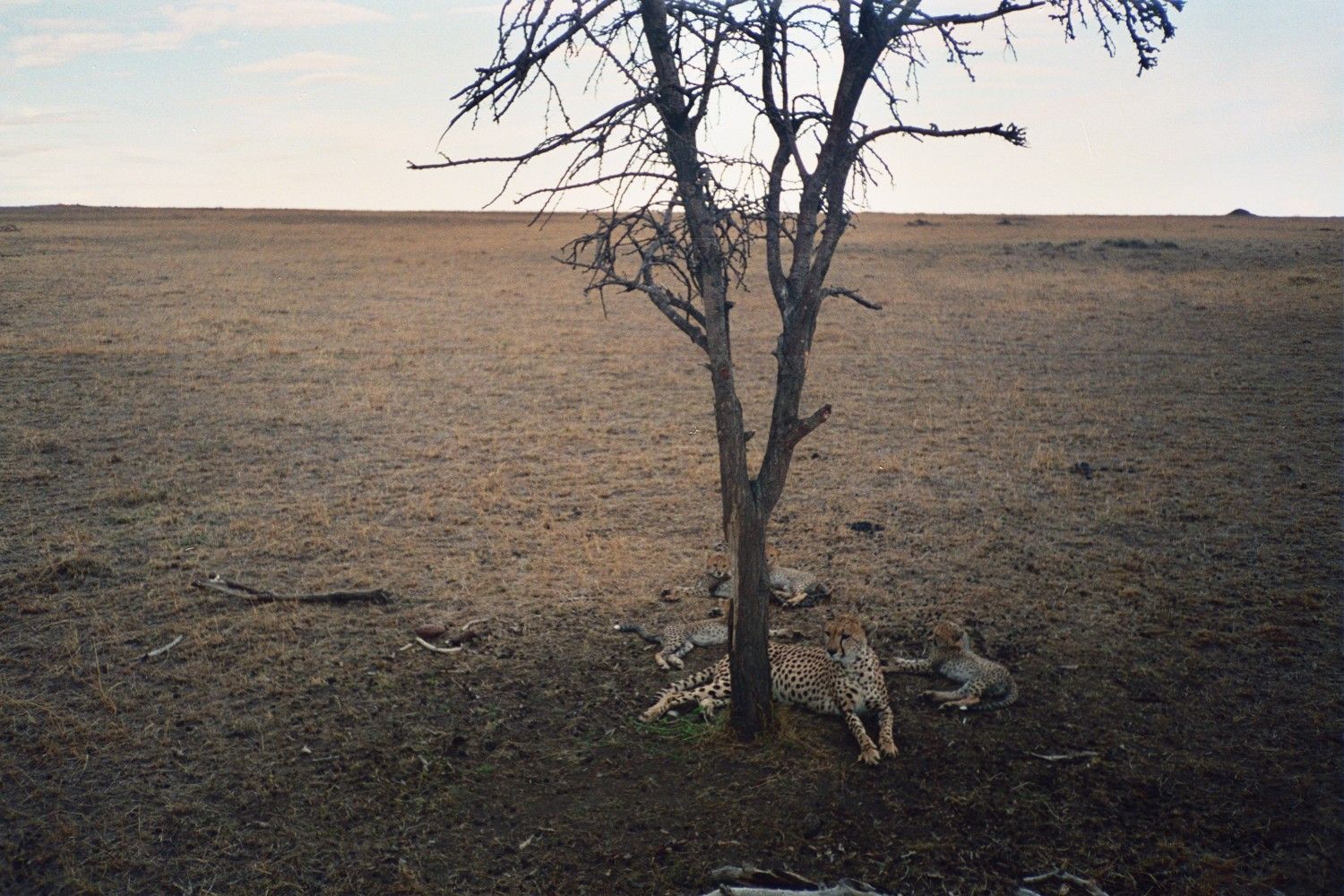
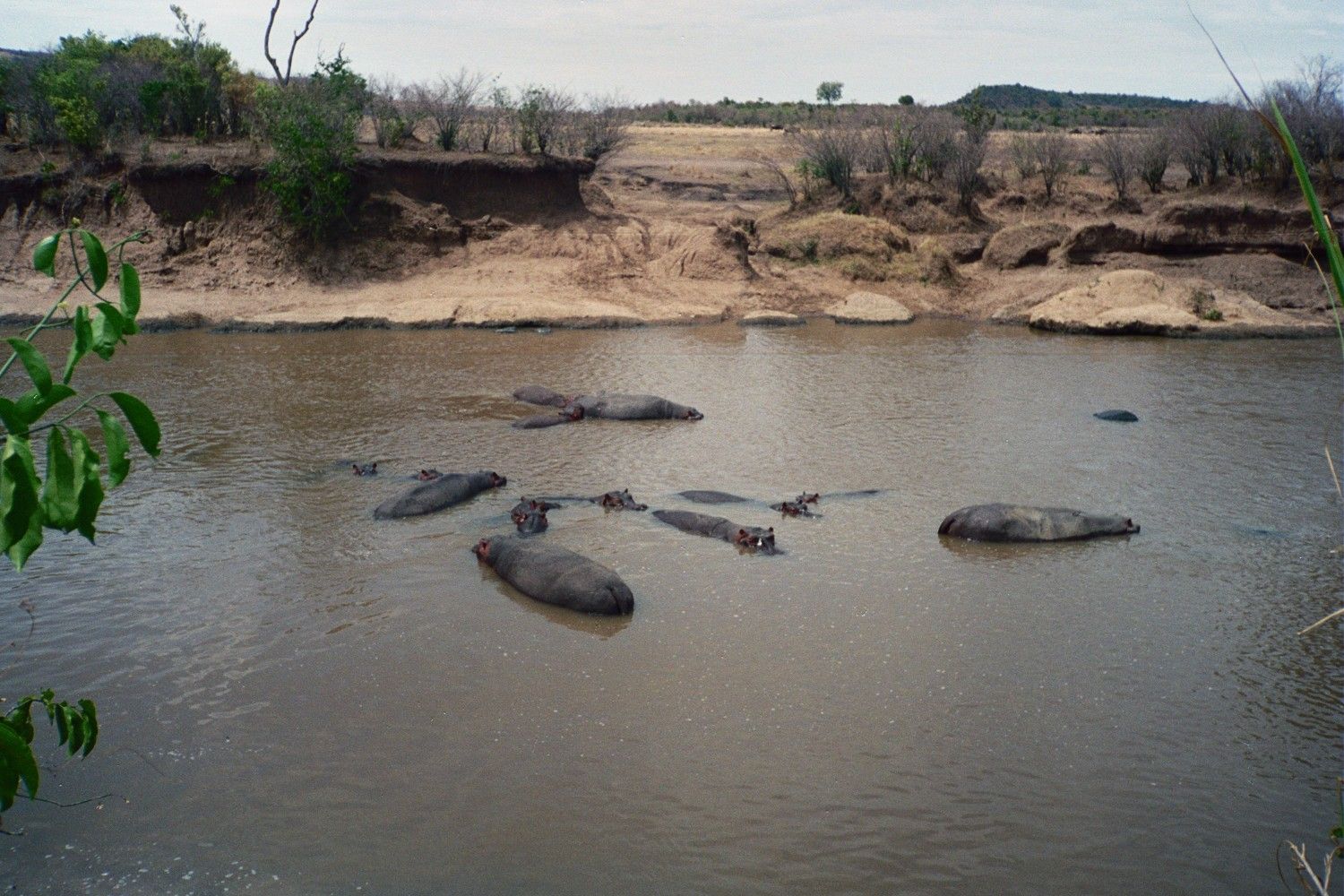
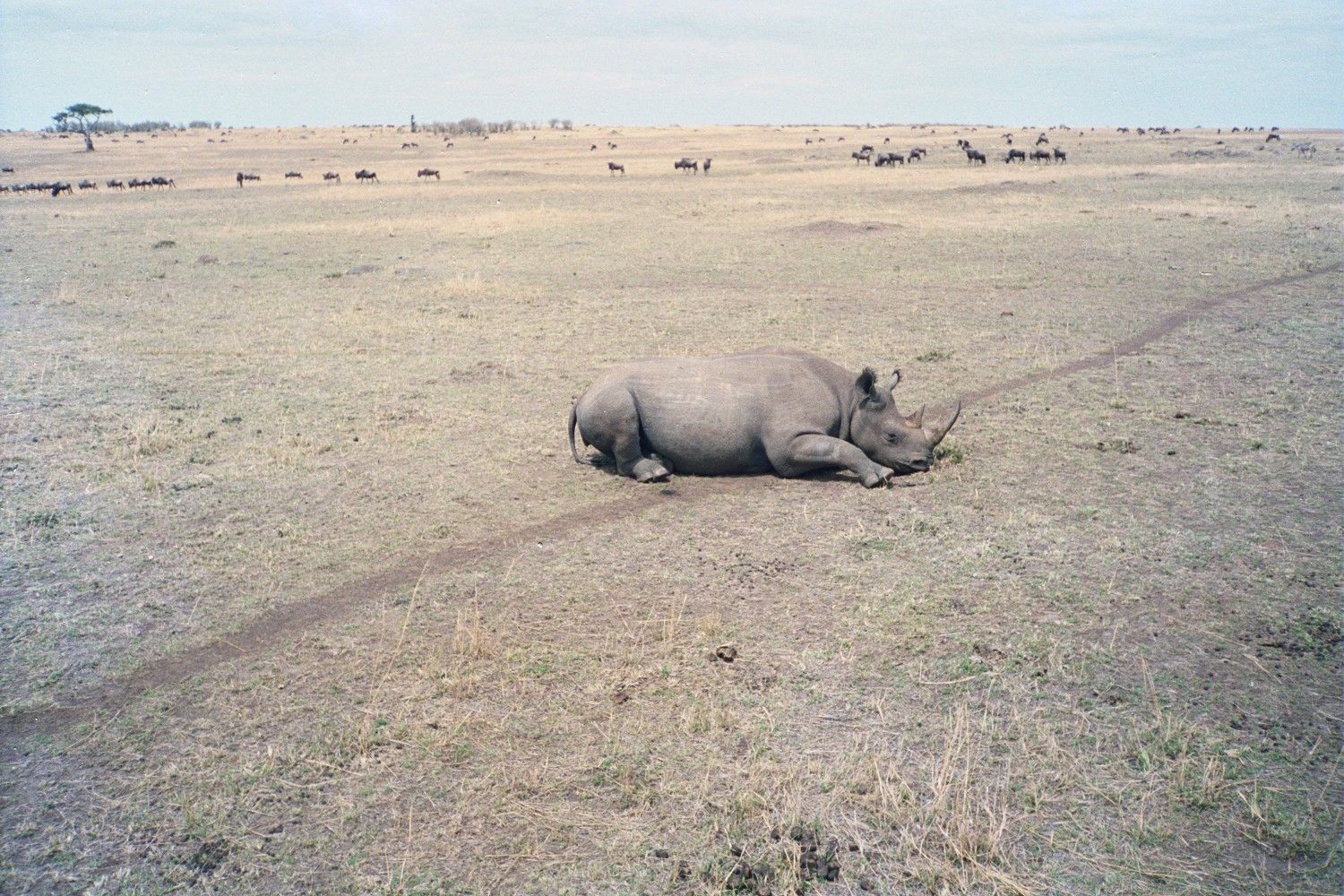
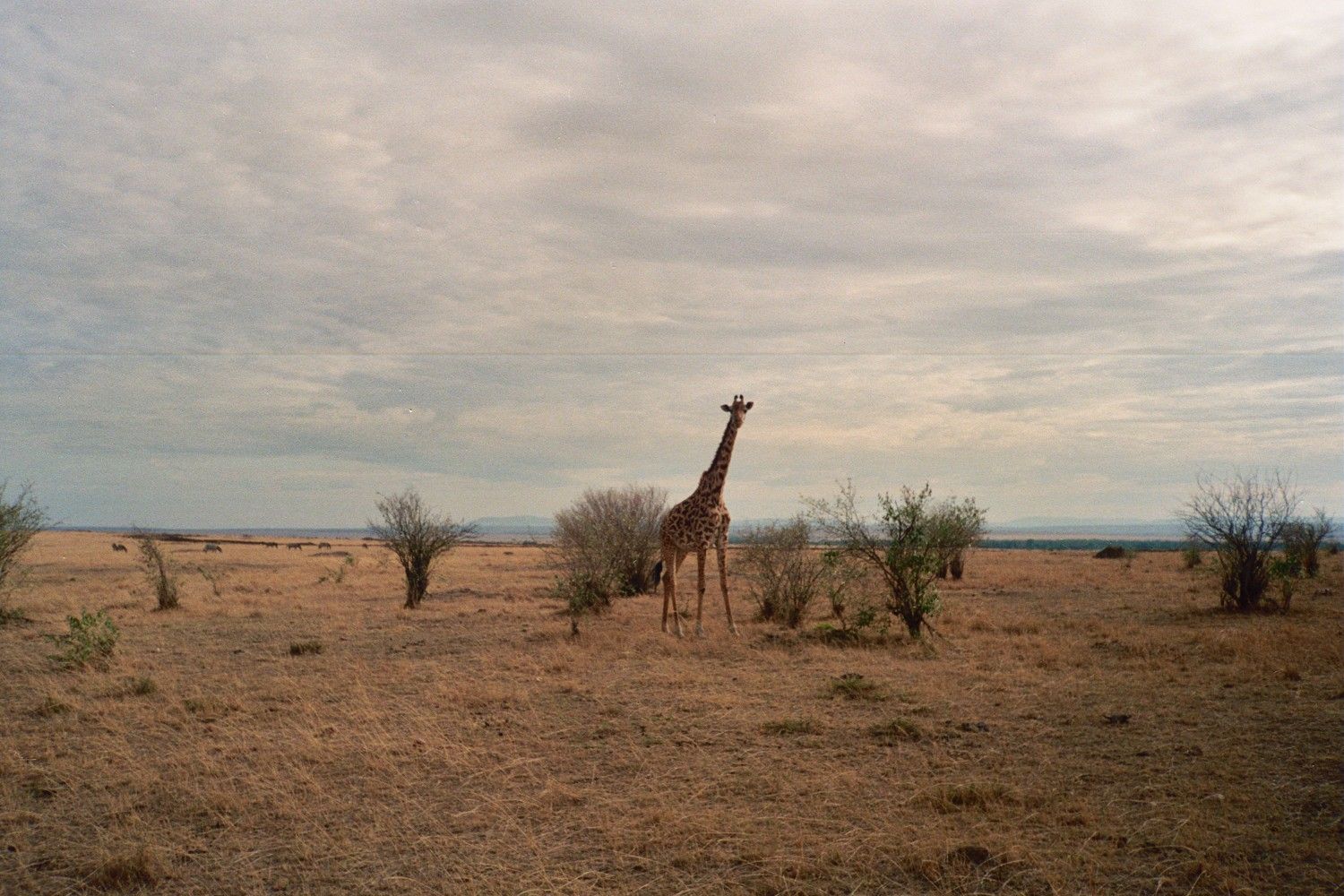
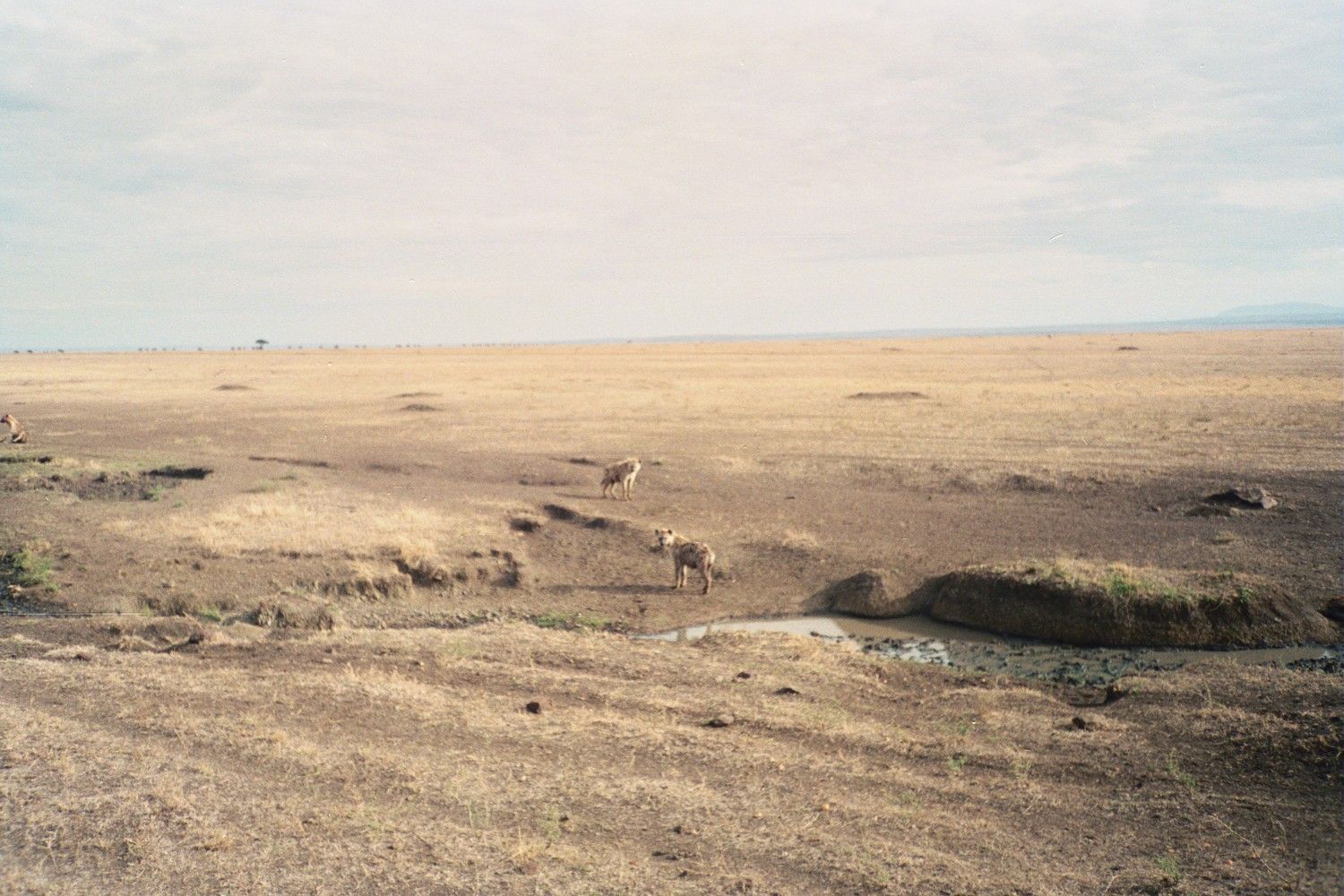
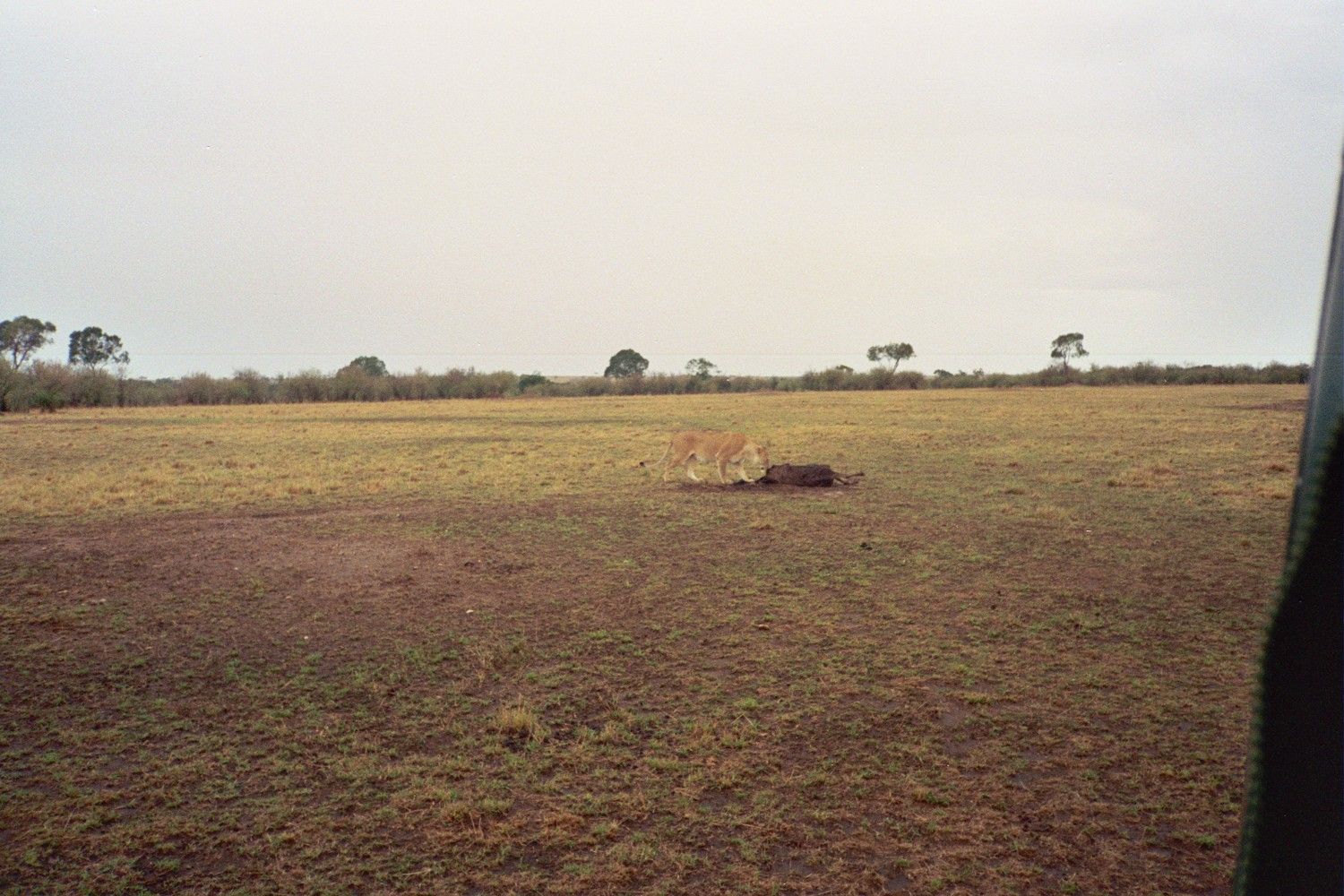
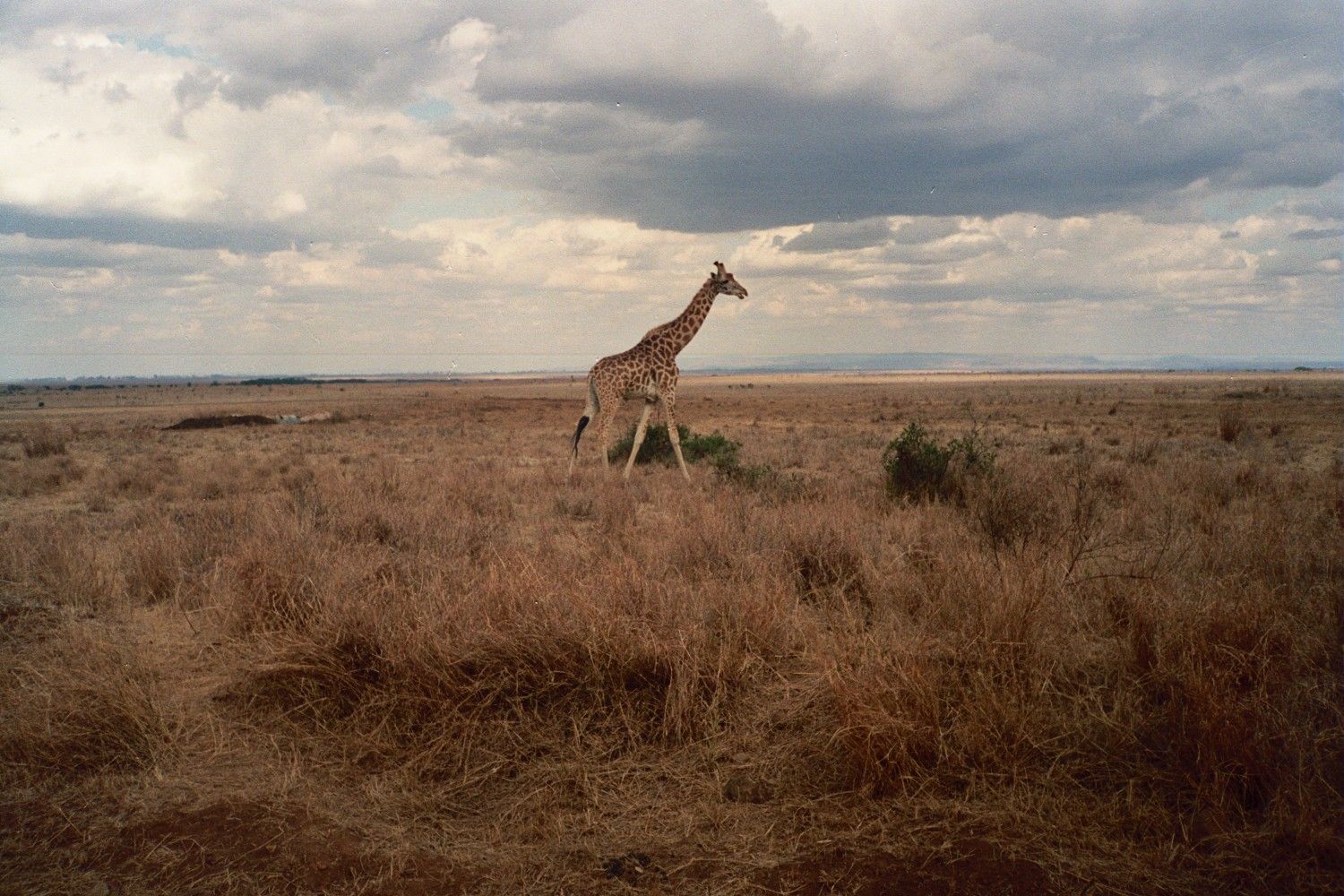
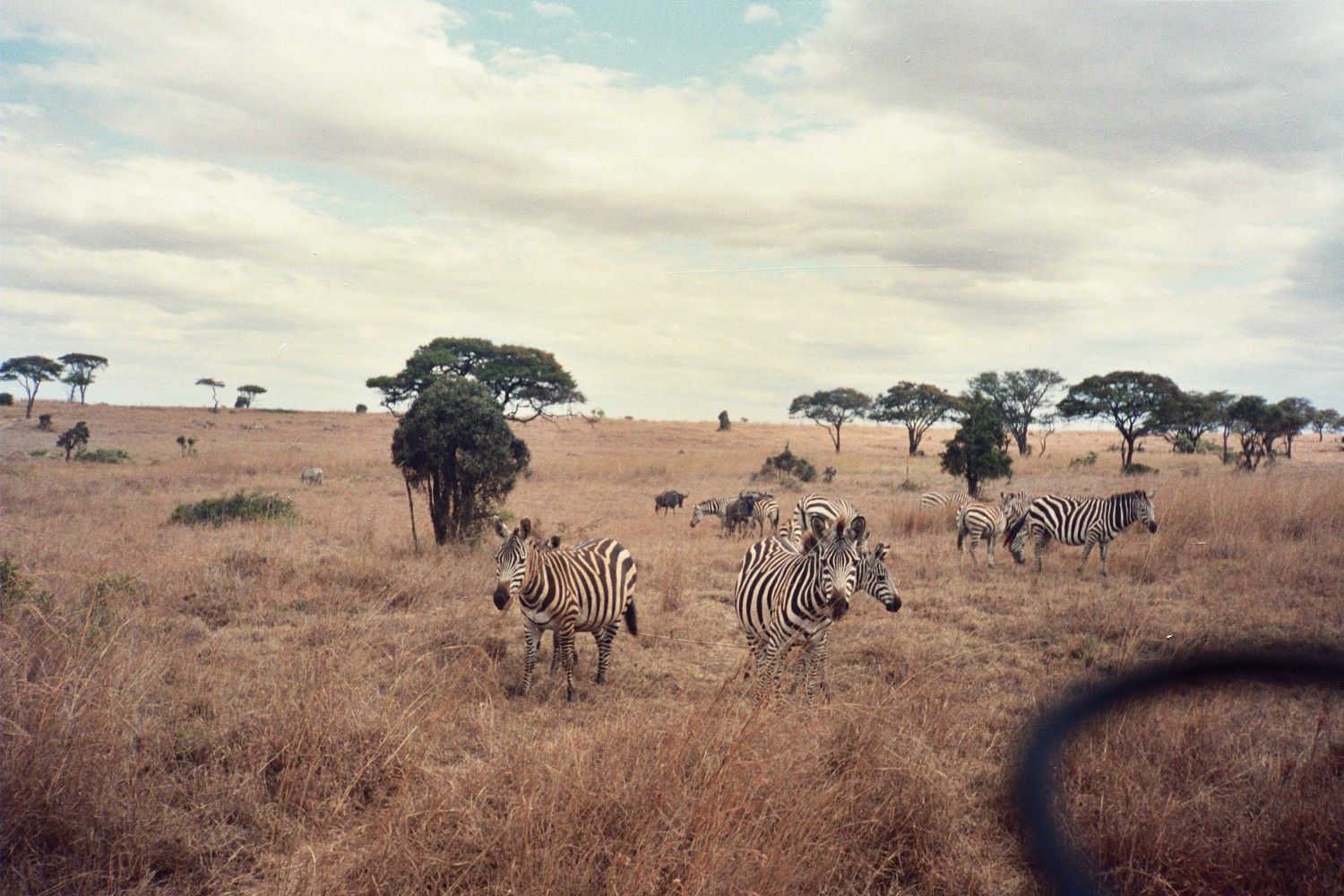
At another place called Lake Nakuru, I saw thousands of pink flamingos ring a large salt-water lake surrounded by round, green hills. The flamingos would fly across in a line. When one went up, the others would follow, moving at the same place the first one did. It was like a pink string wavering across the blue sky.
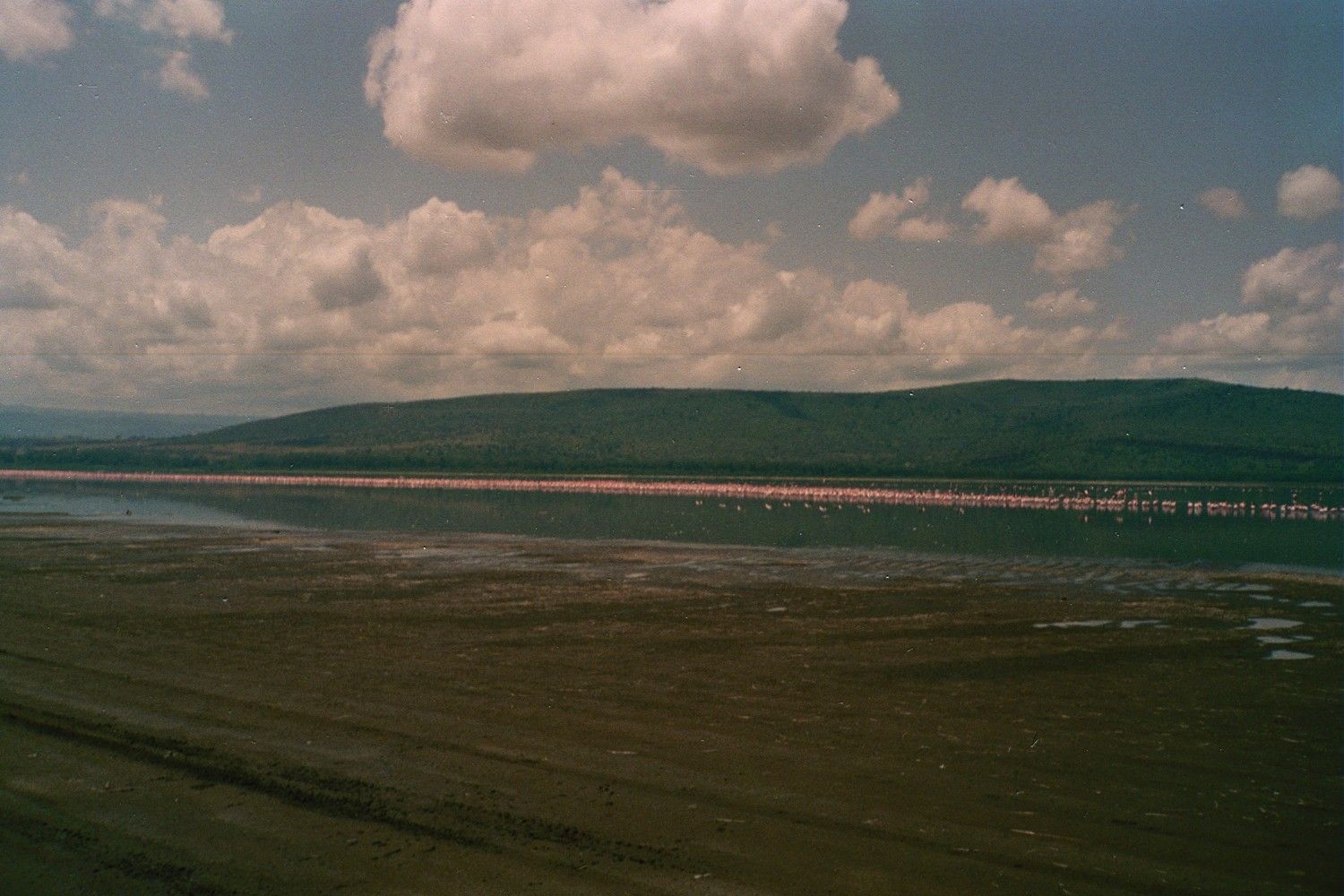
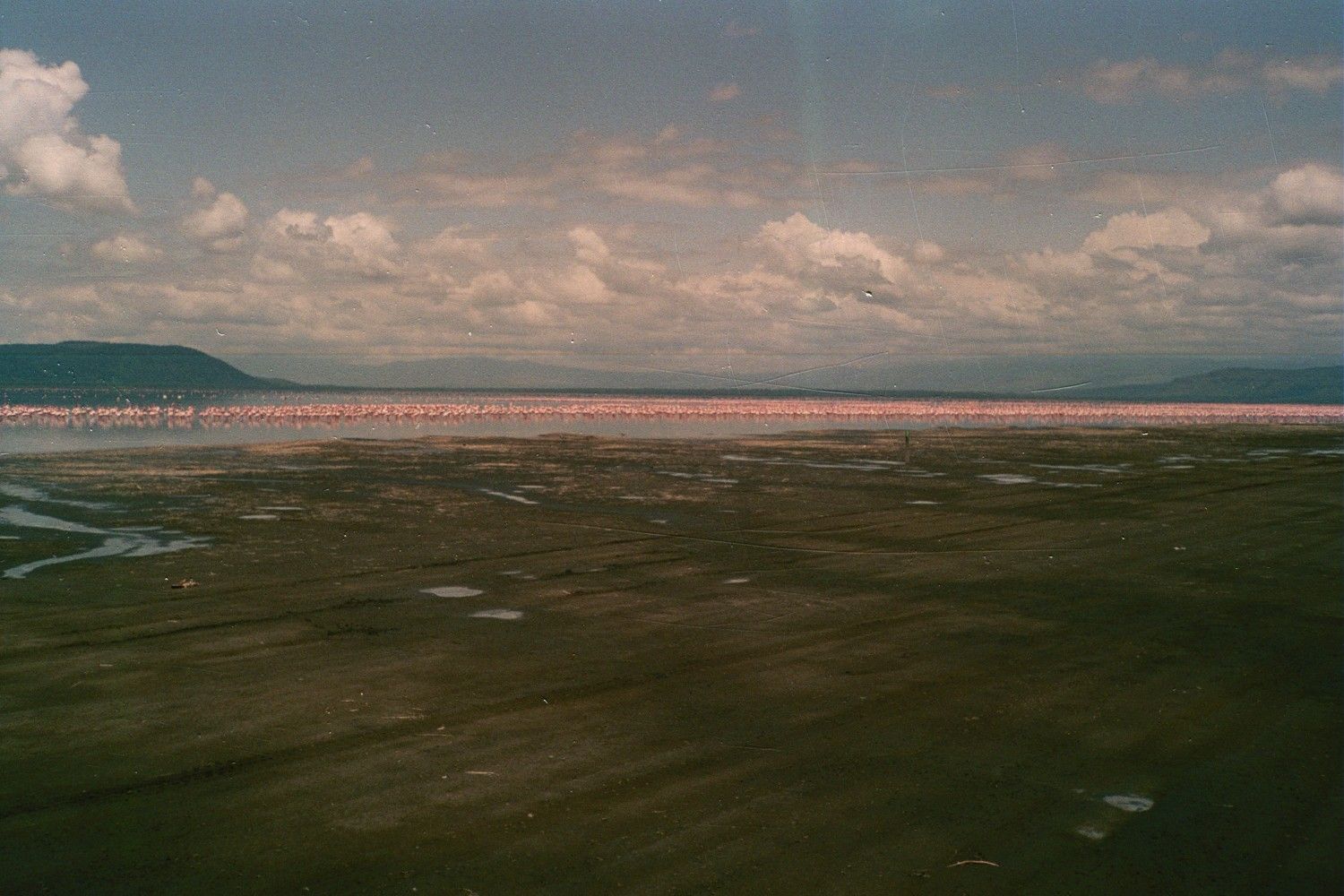
In case anyone was wondering, I’m actually the CFO of a company called Africa Expeditions (P.O. Box 24598, Nairobi, Kenya – in case you want to write). Originally it was a safari business, but over half of its work now is logistics and procurement for the UN and UNOSOM. We do luxury tented safaris (including one this January in Ethiopia), have a safari desk at the Intercontinental Hotel in Mombasa, run camps for UN relief workers in Northern Kenya, run that hotel in Mombasa, do all the procurement for the Swedish Field Hospital in Mogadishu, are looking at purchasing a company in Tanzania and are looking at establishing operations in Uganda and Ethiopia (where we currently have reps).
I find I spend as much of my time in operations (including running the restaurant/bar of the Mombasa hotel), marketing, contract negotiations and new business development as I do in finance. Its just your basic entrepreneurial juggling act.
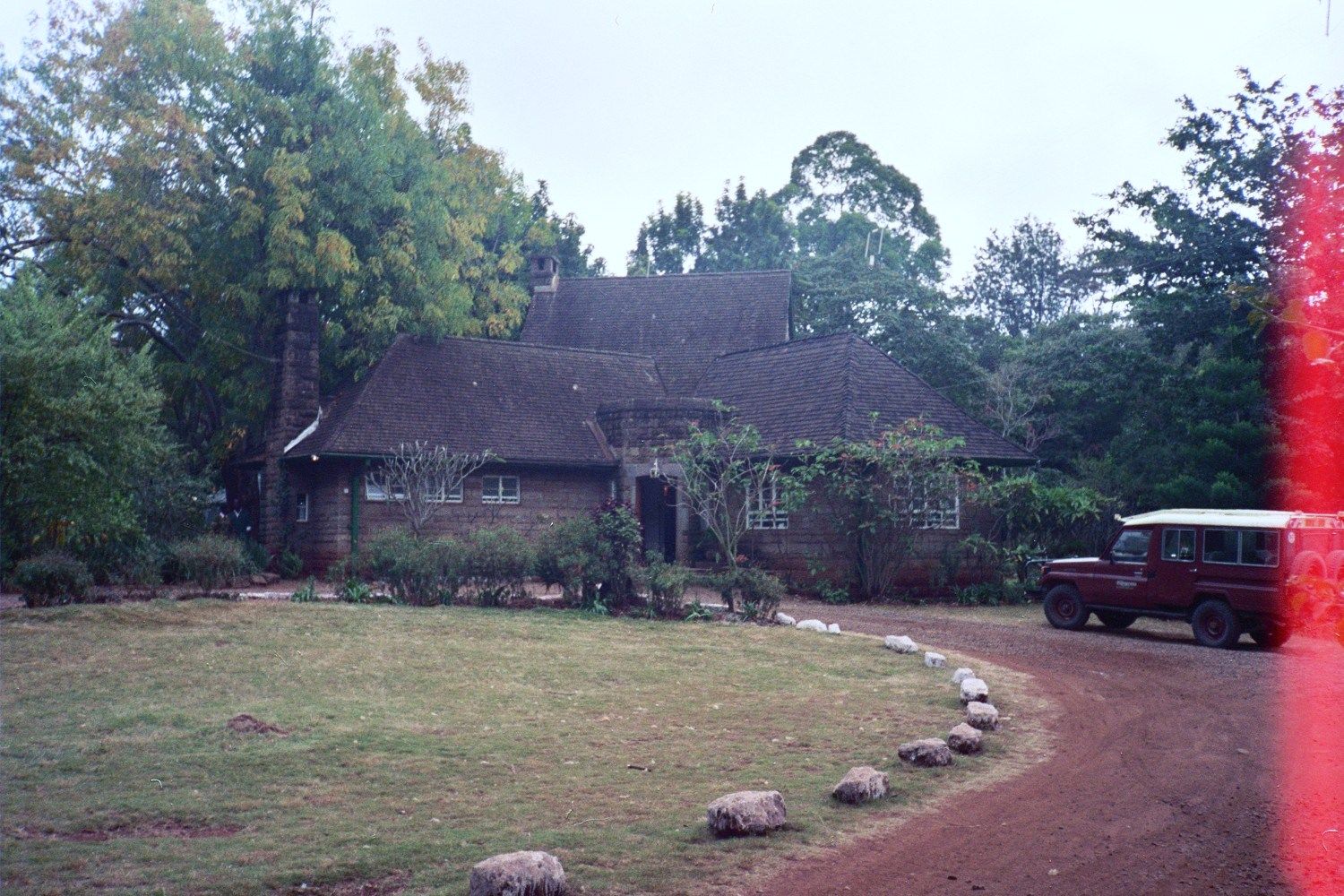
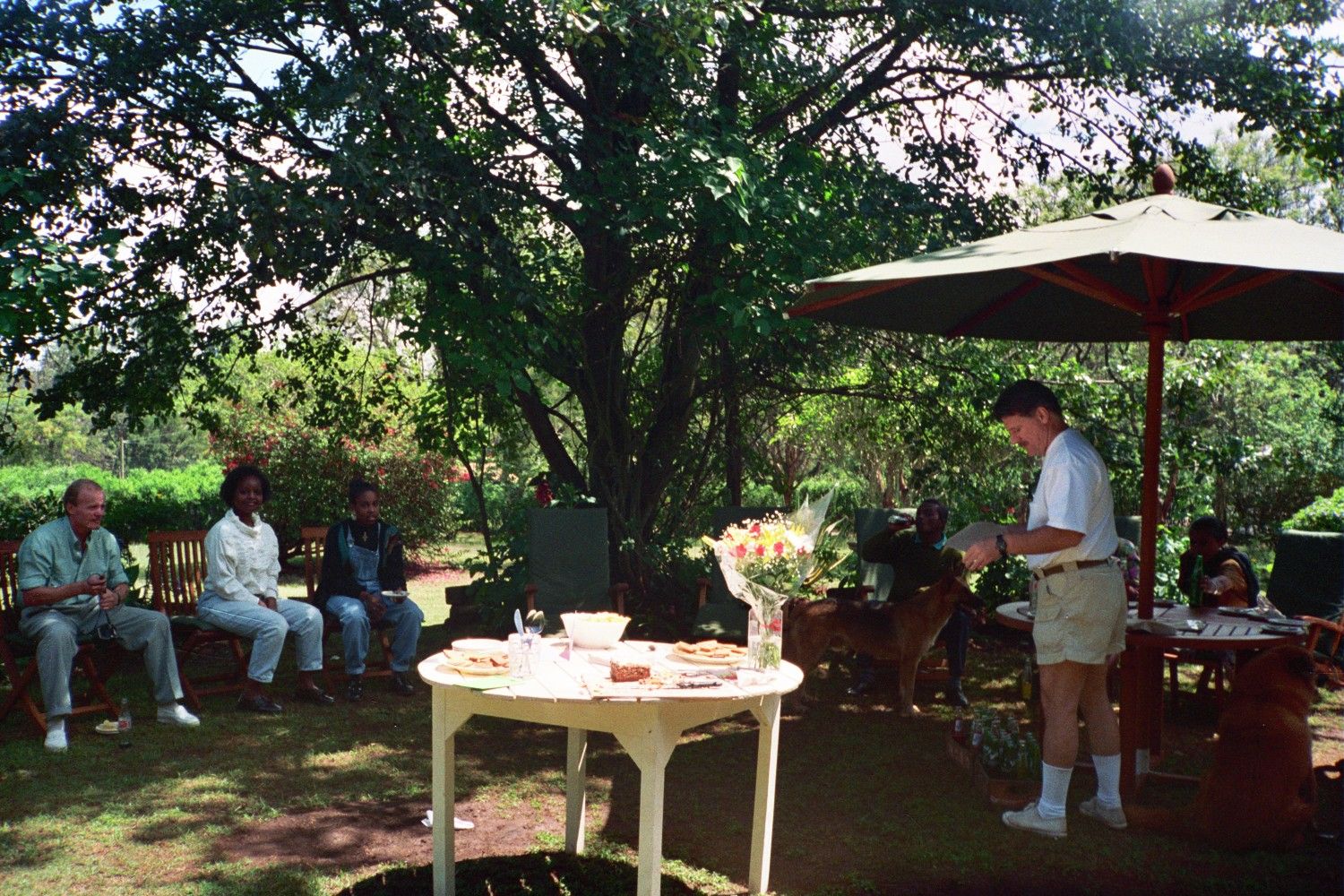
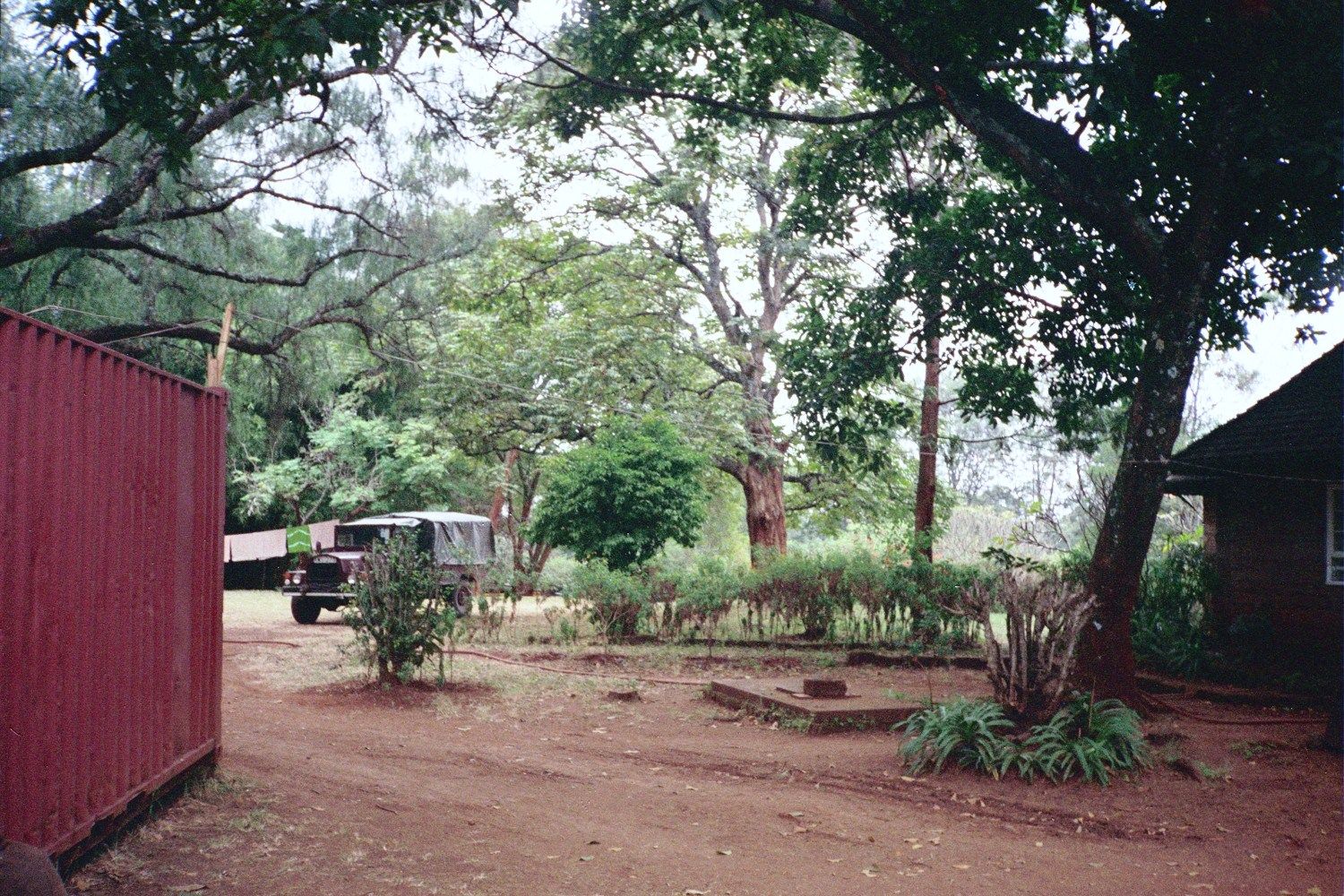
Anyway, I hope all is well back home. I apologize for the form letter, but its the only way to keep in touch with everyone who wanted to know what the hell I was doing in Africa.
